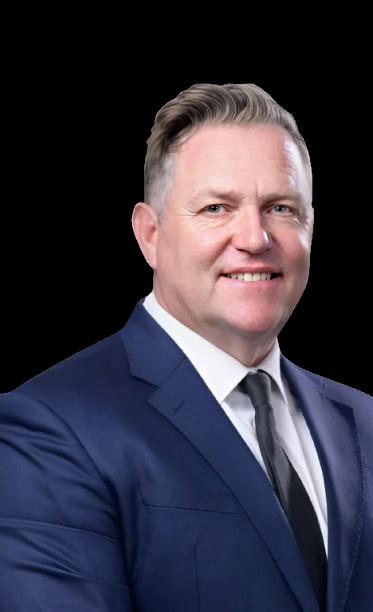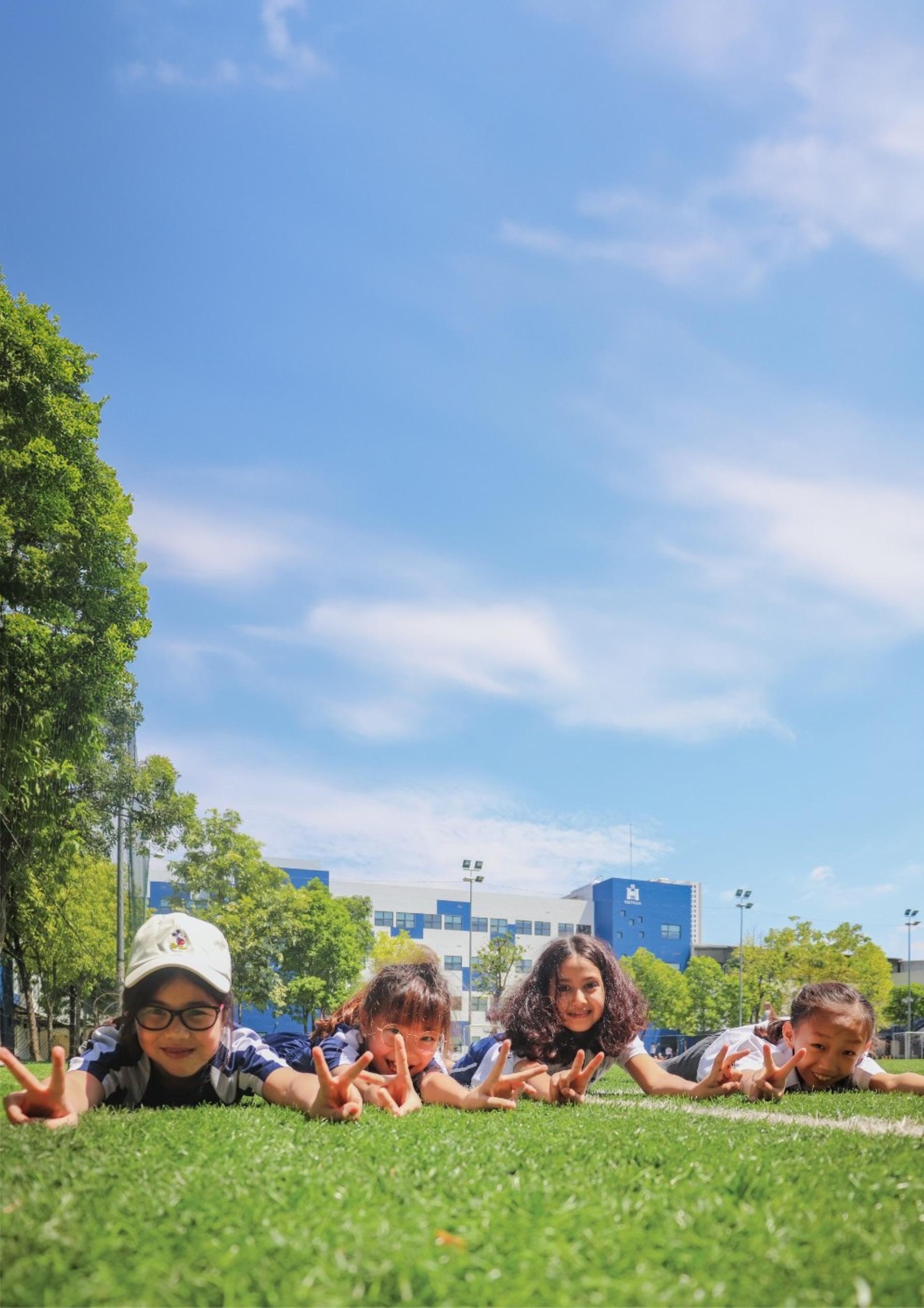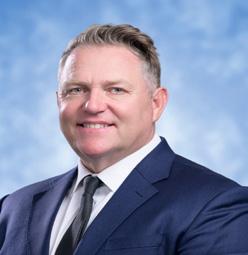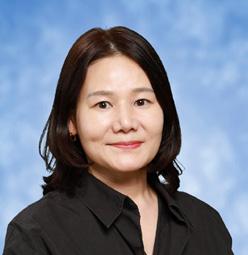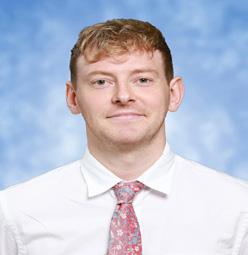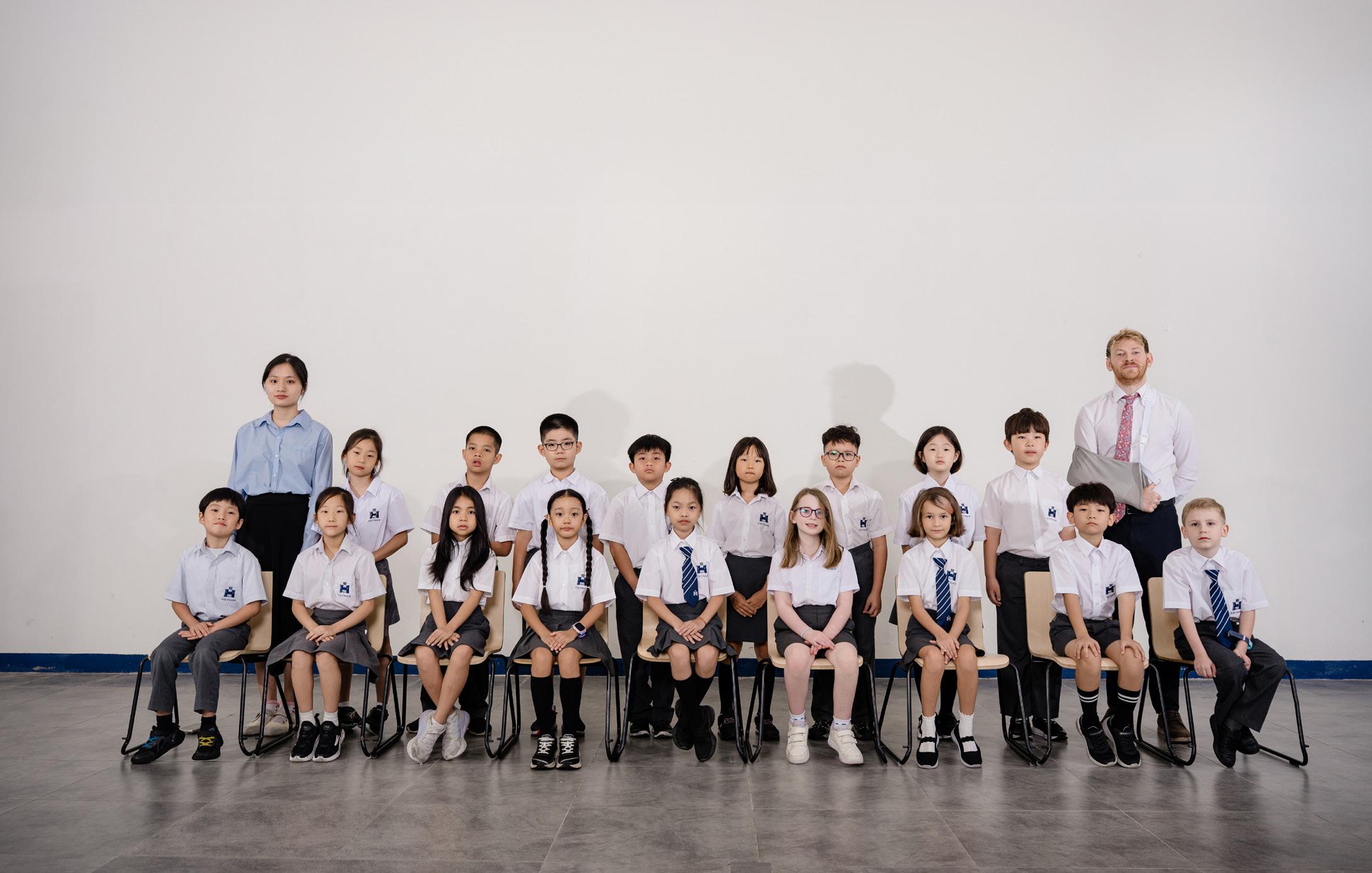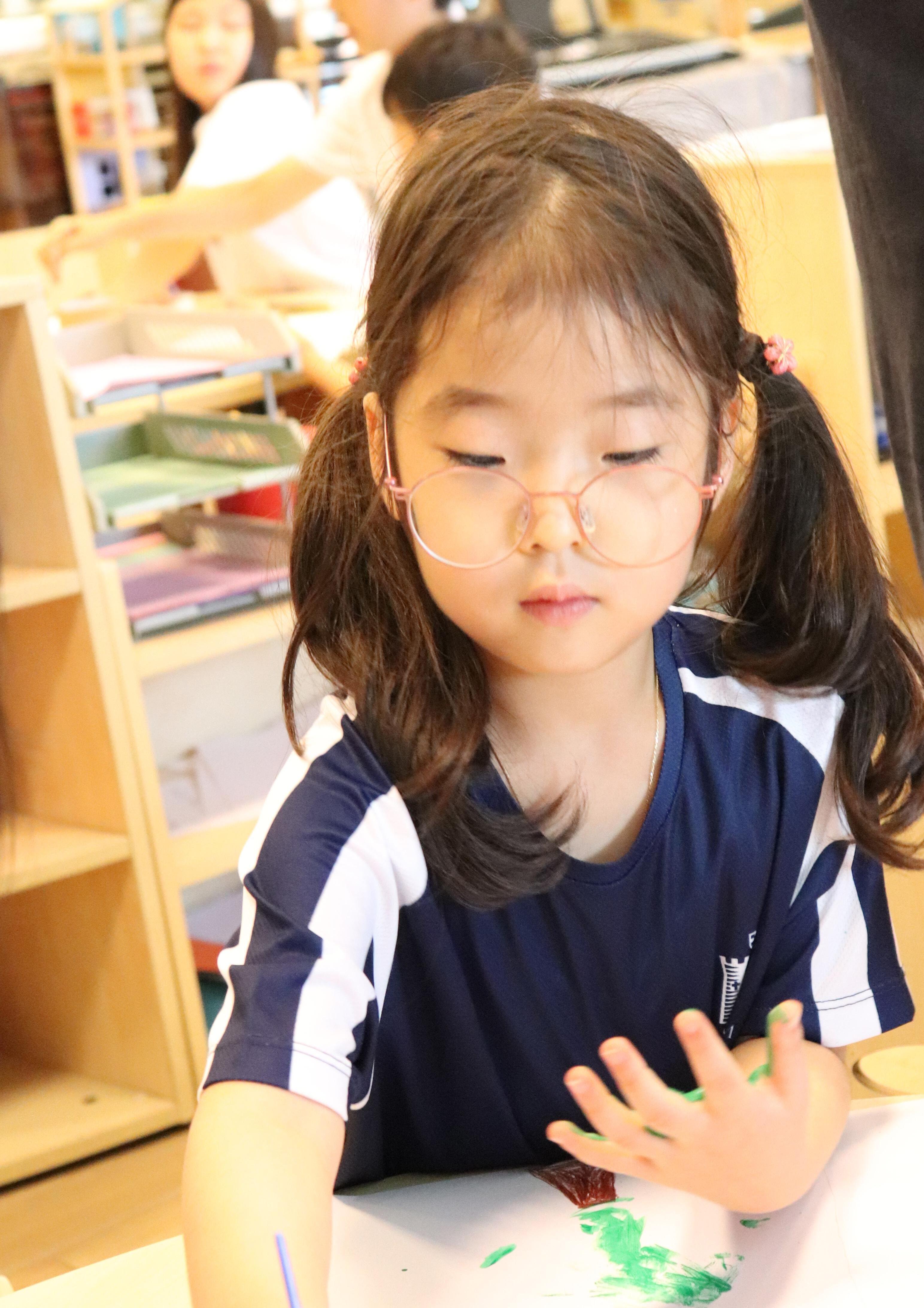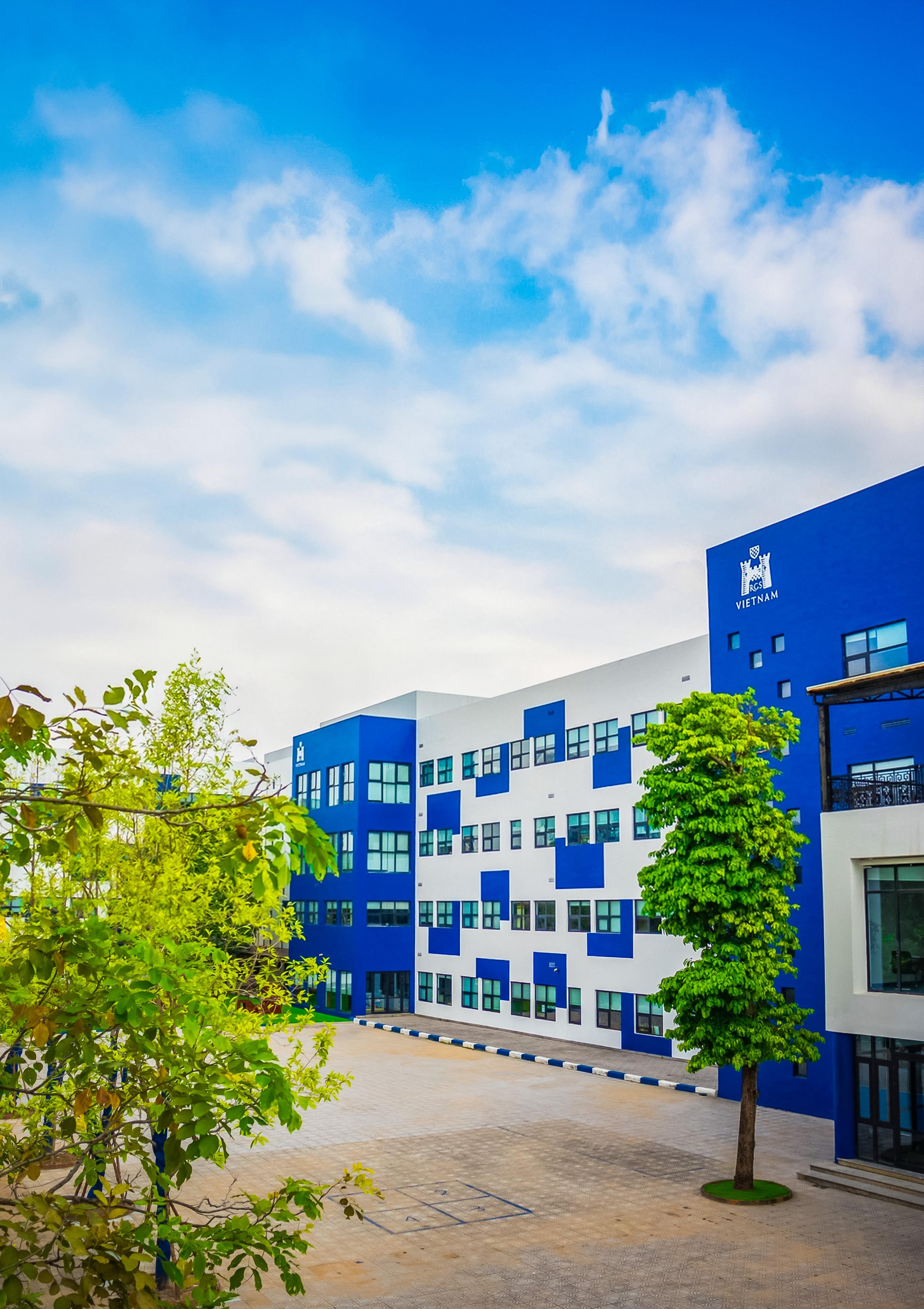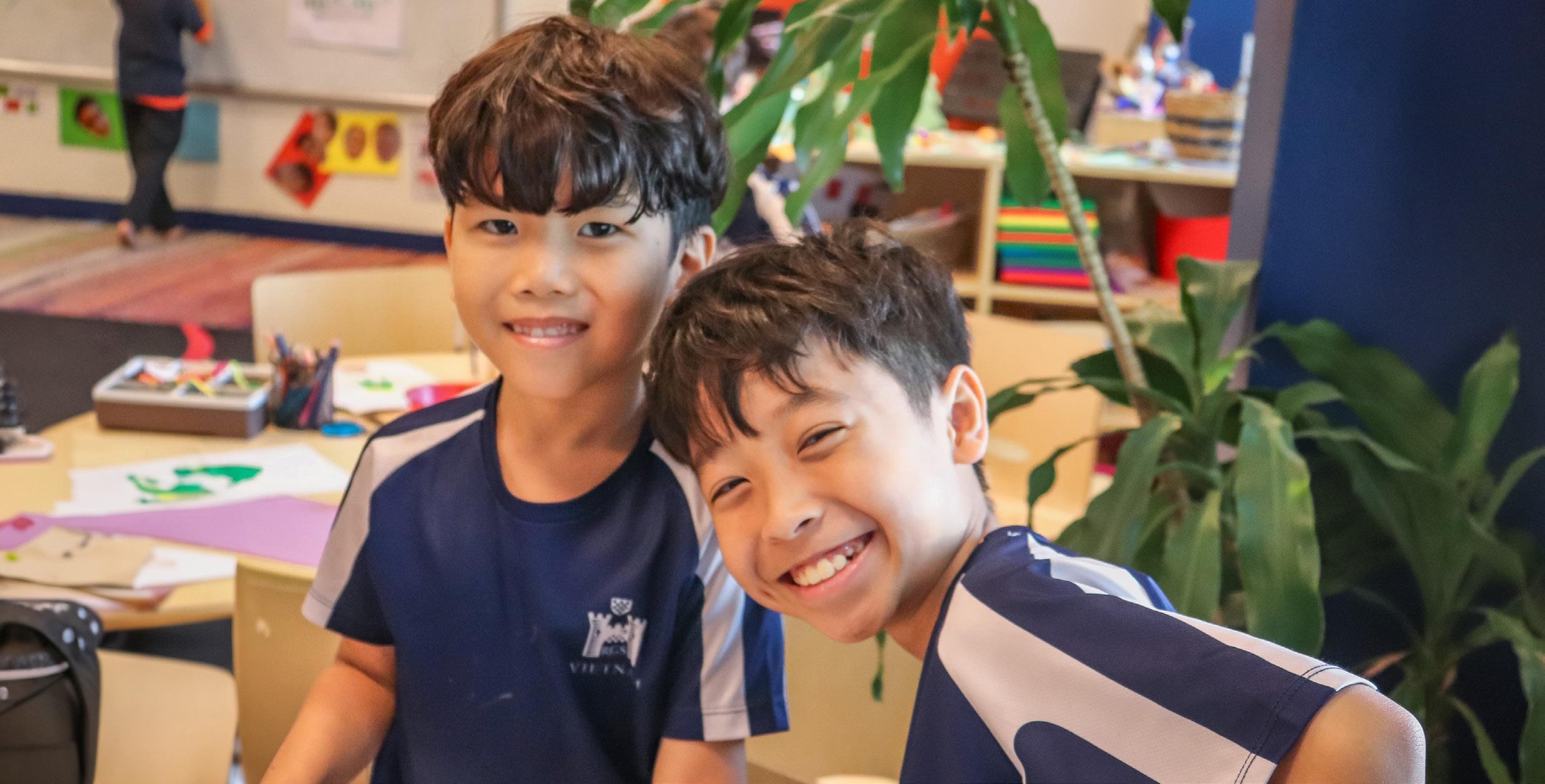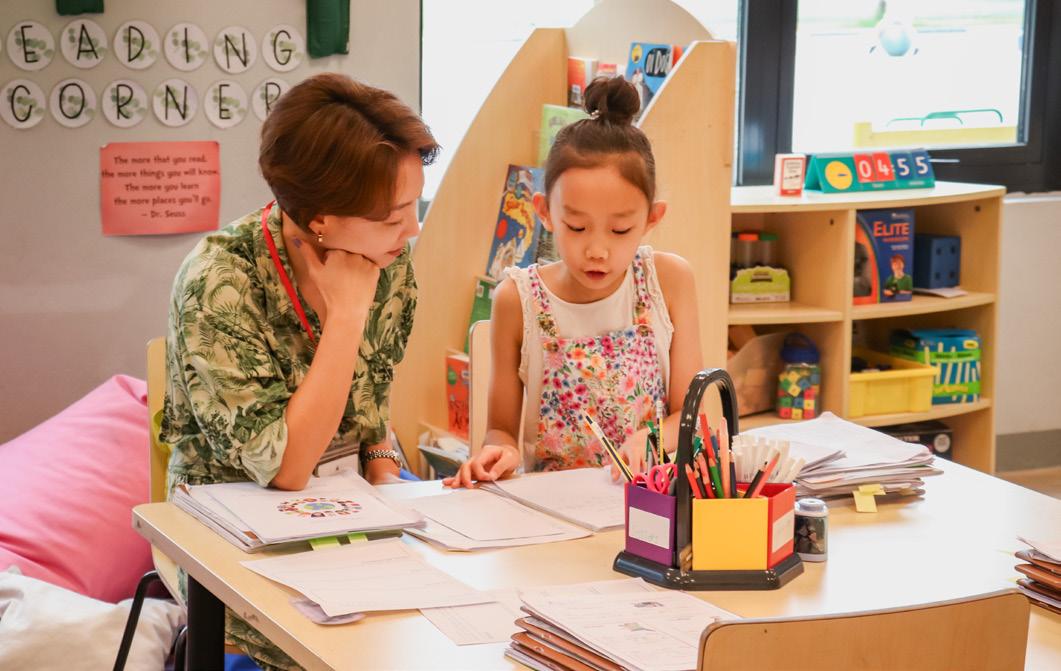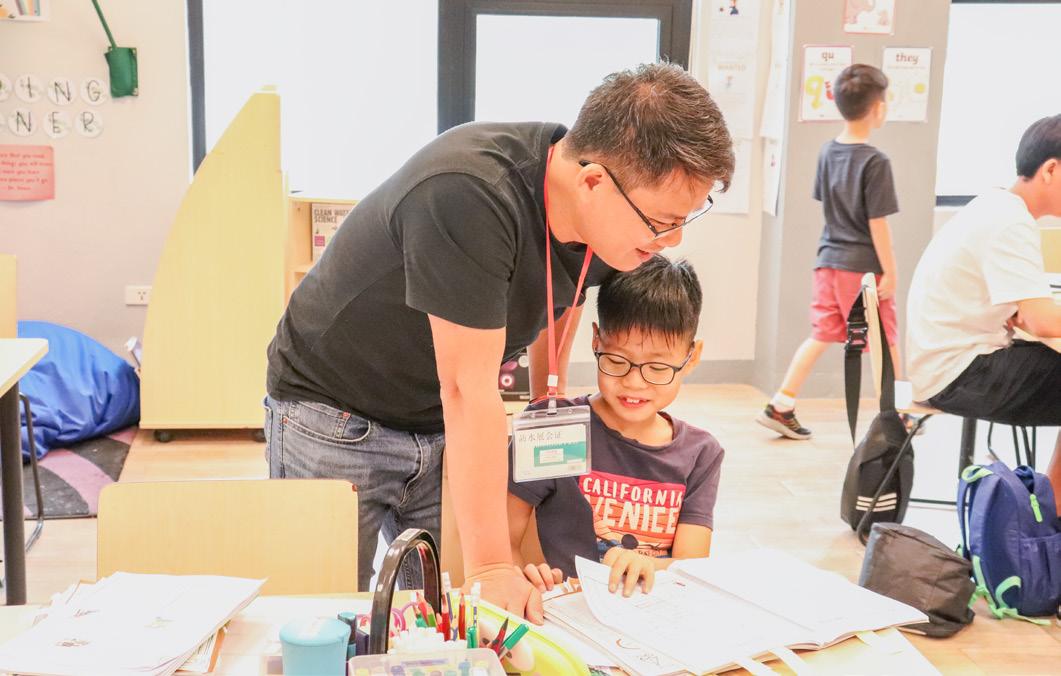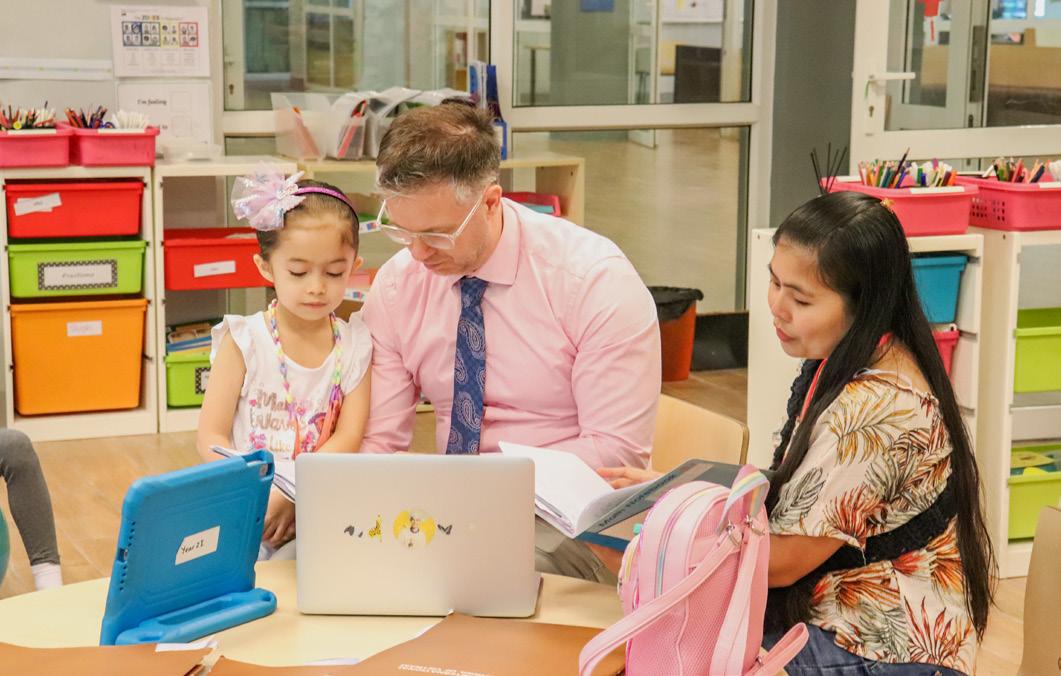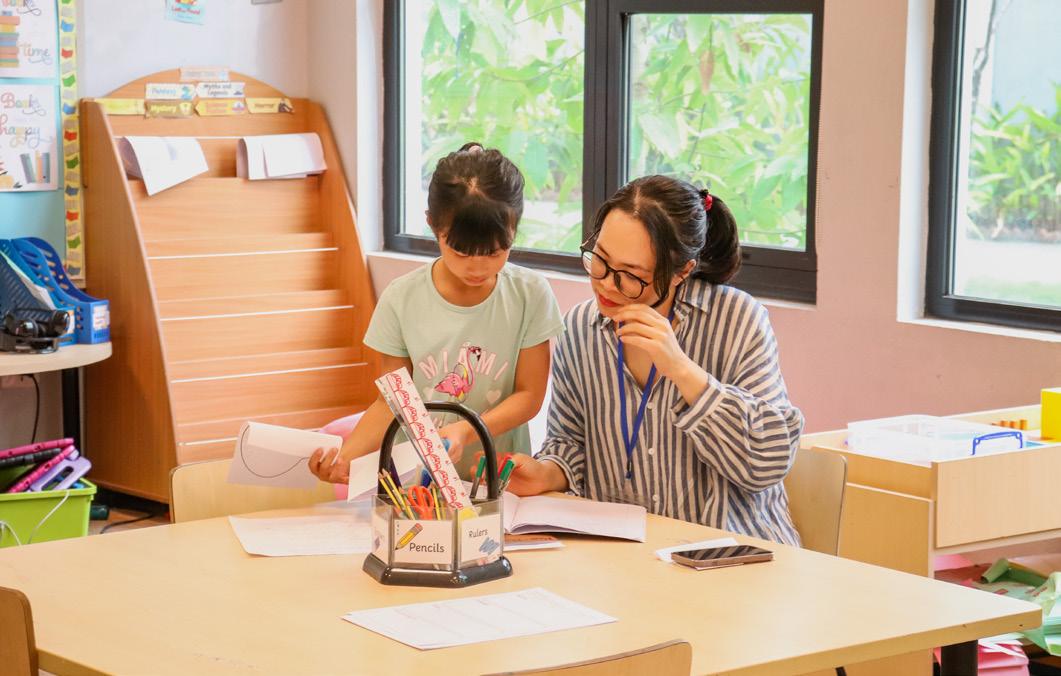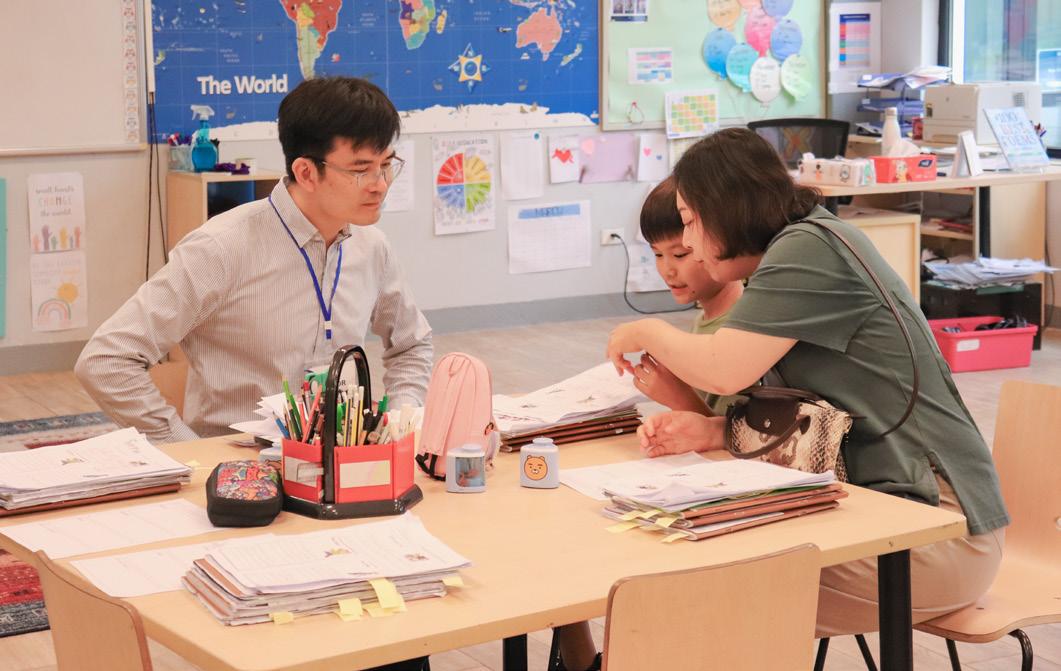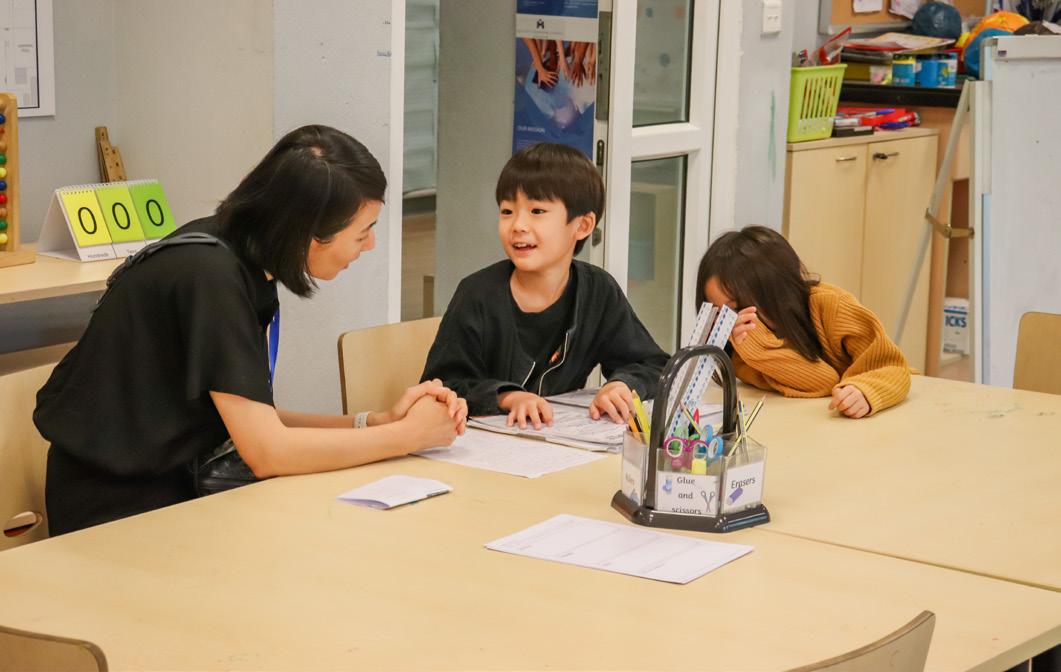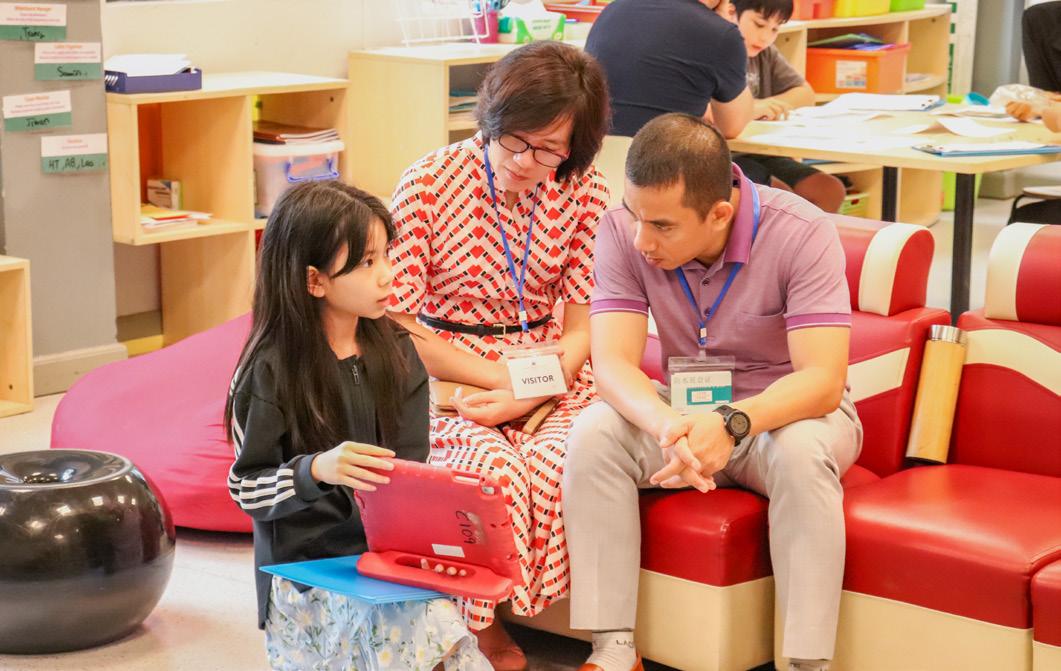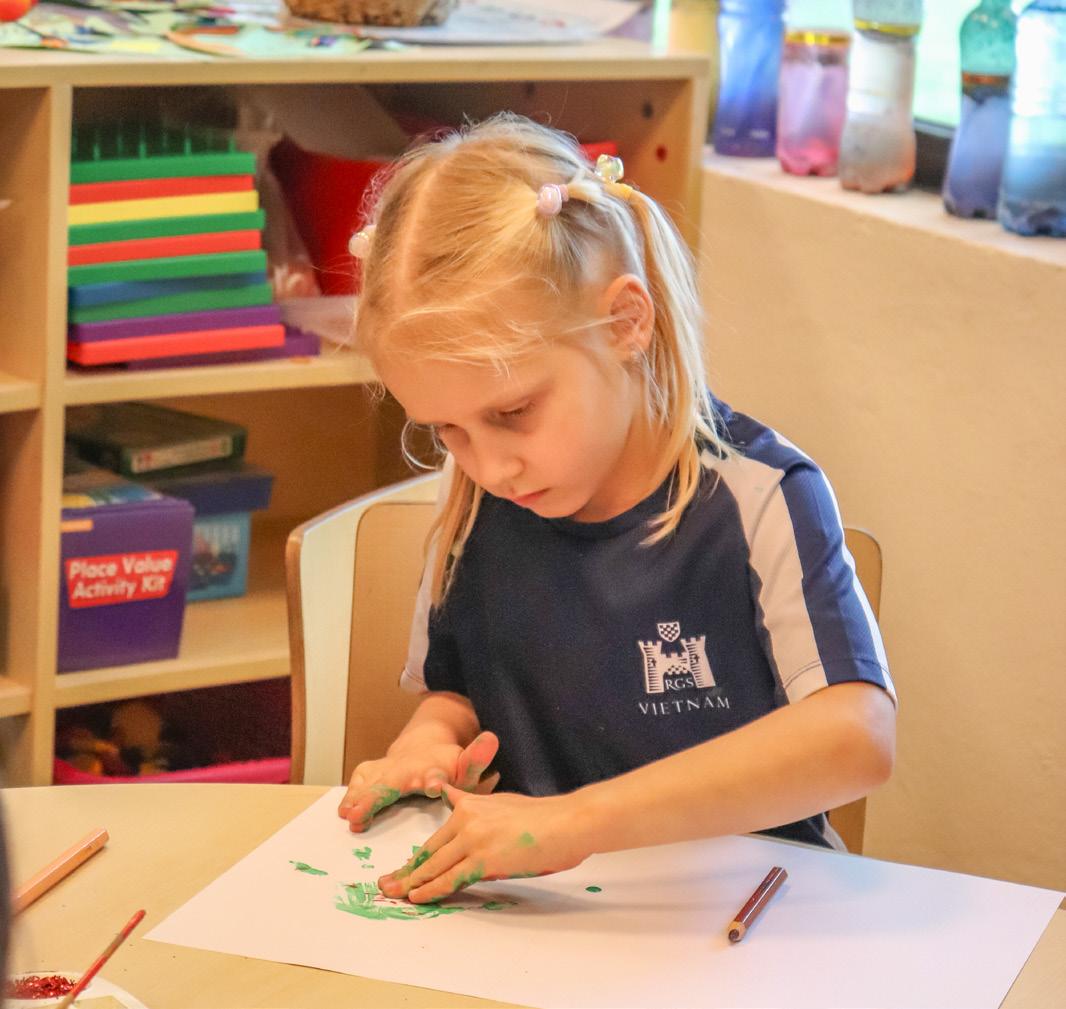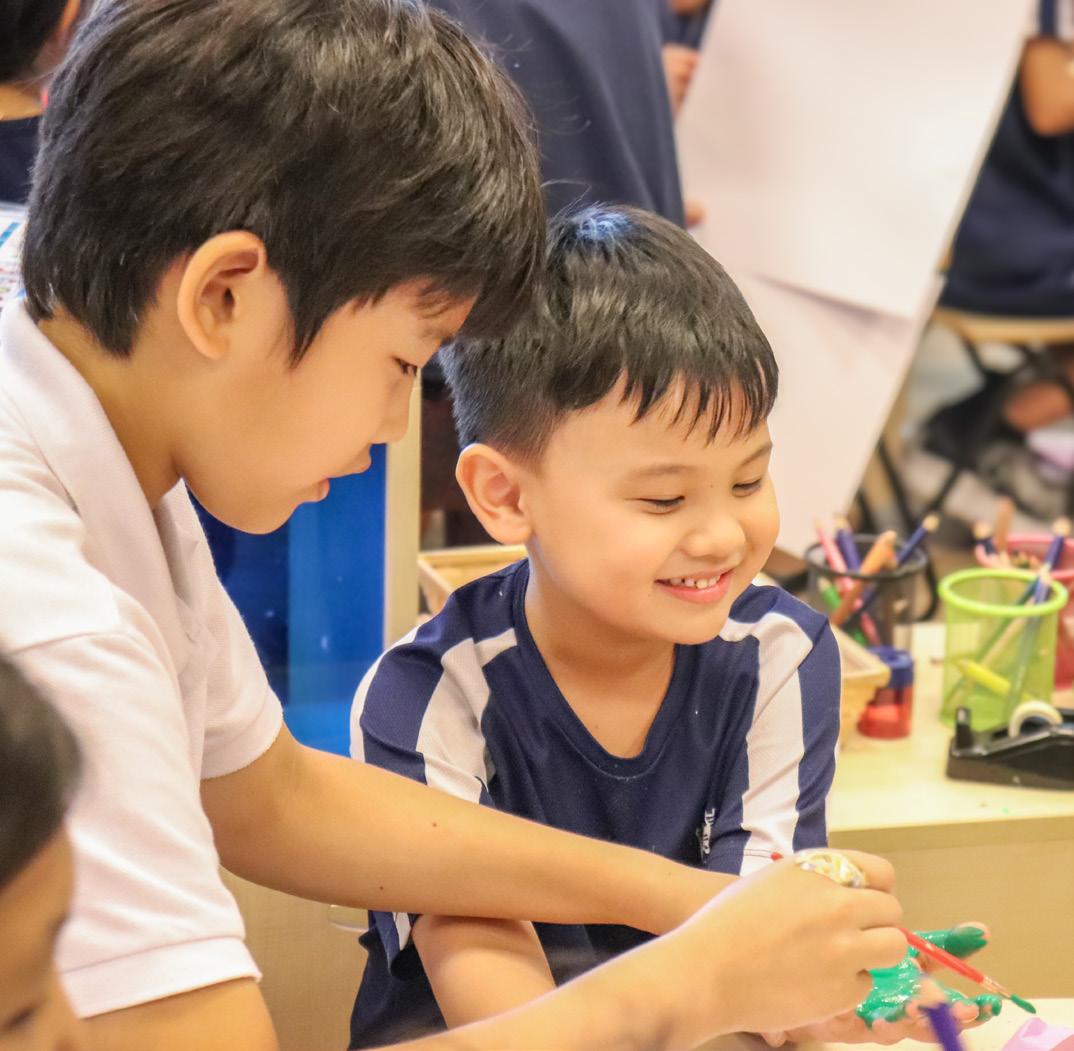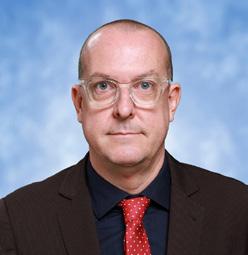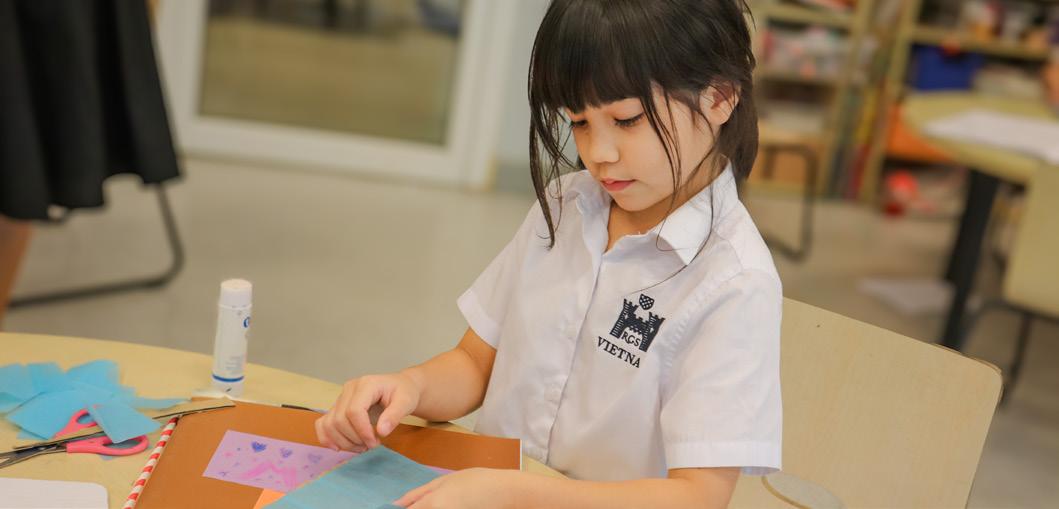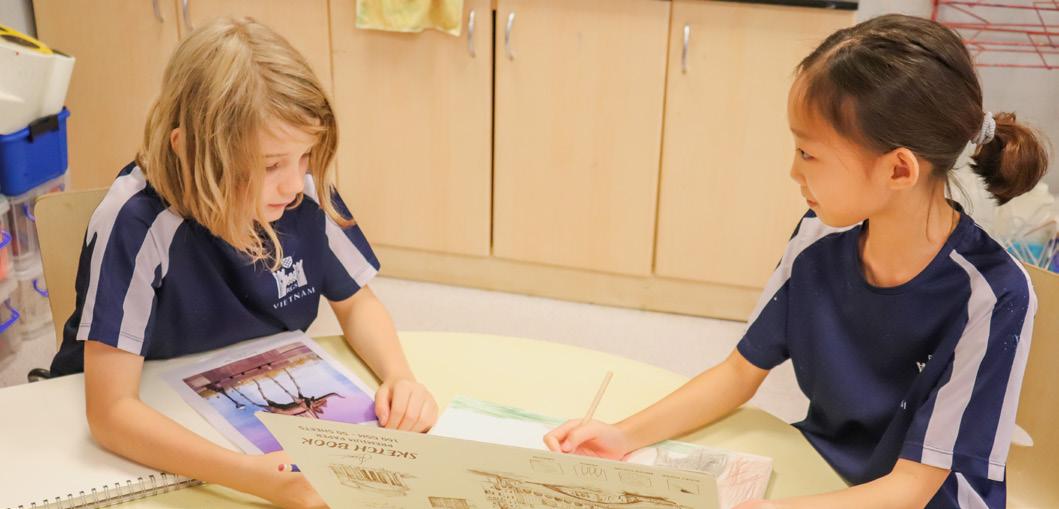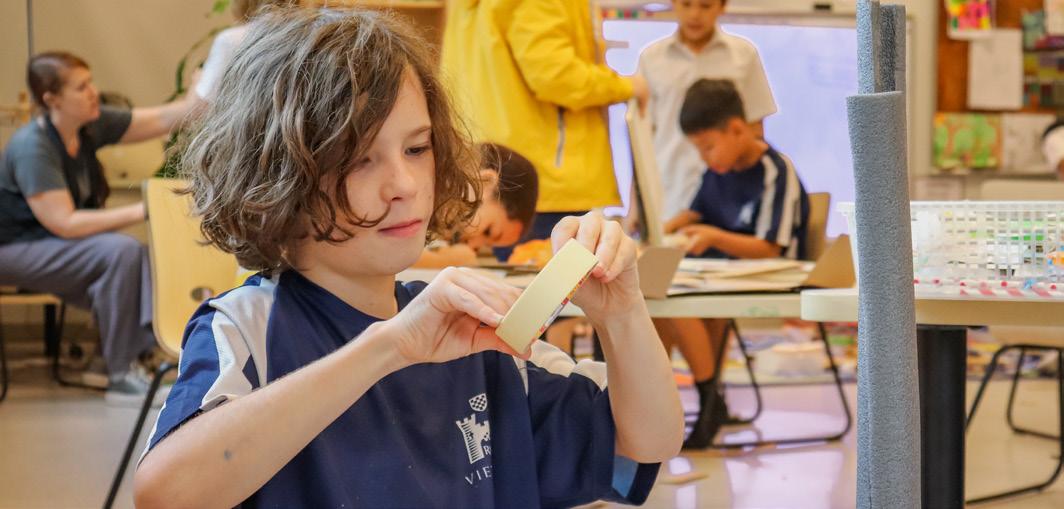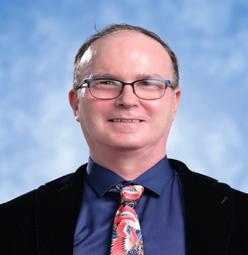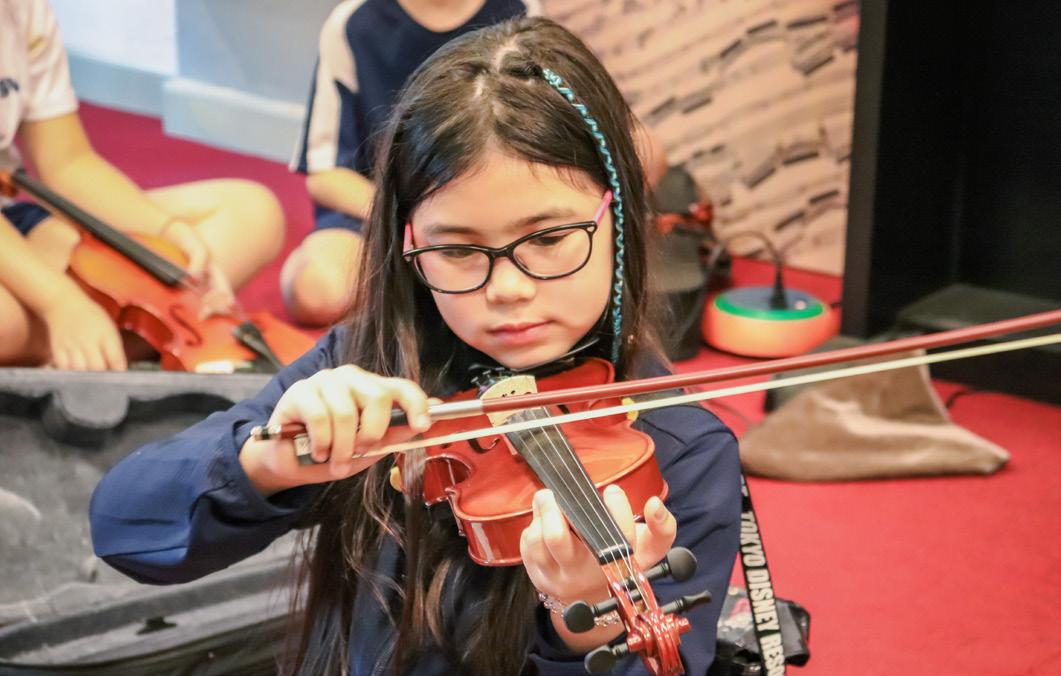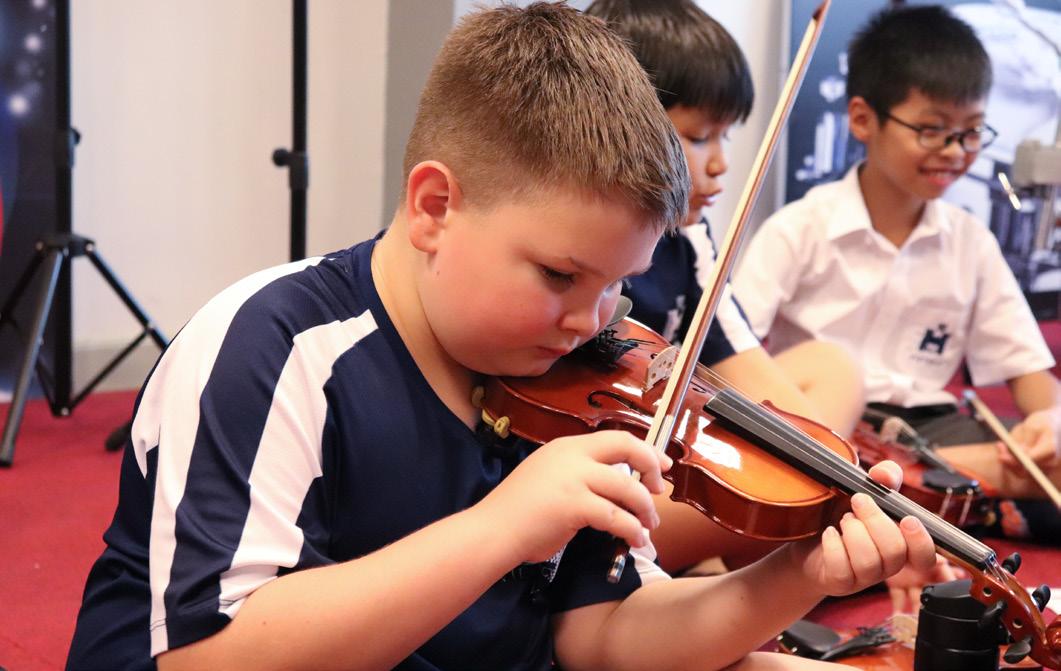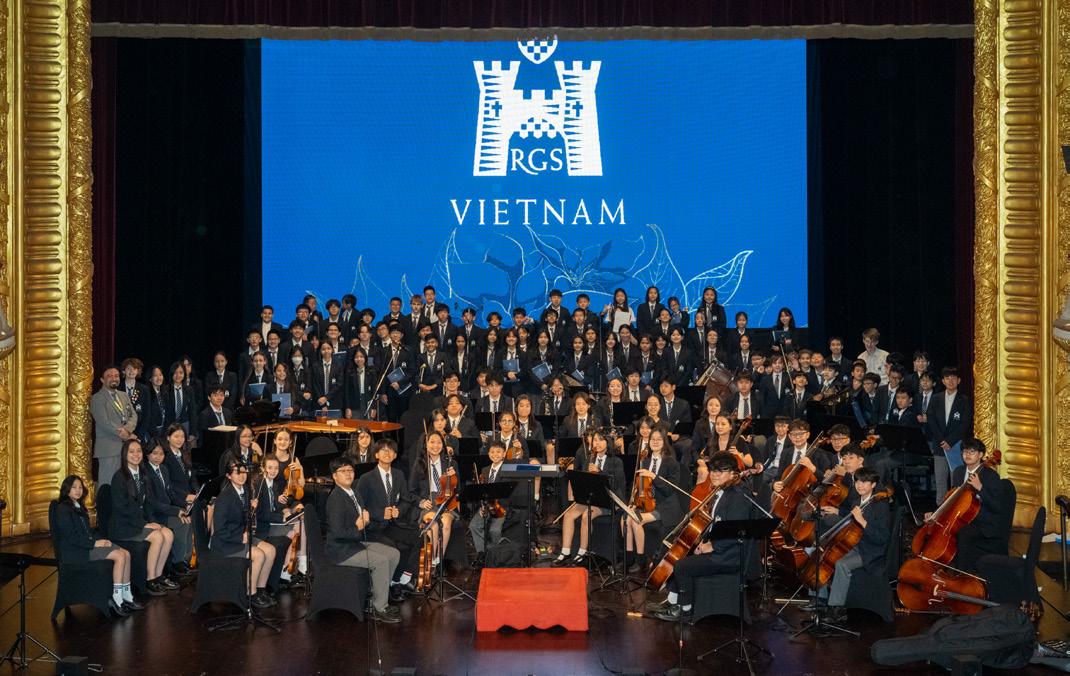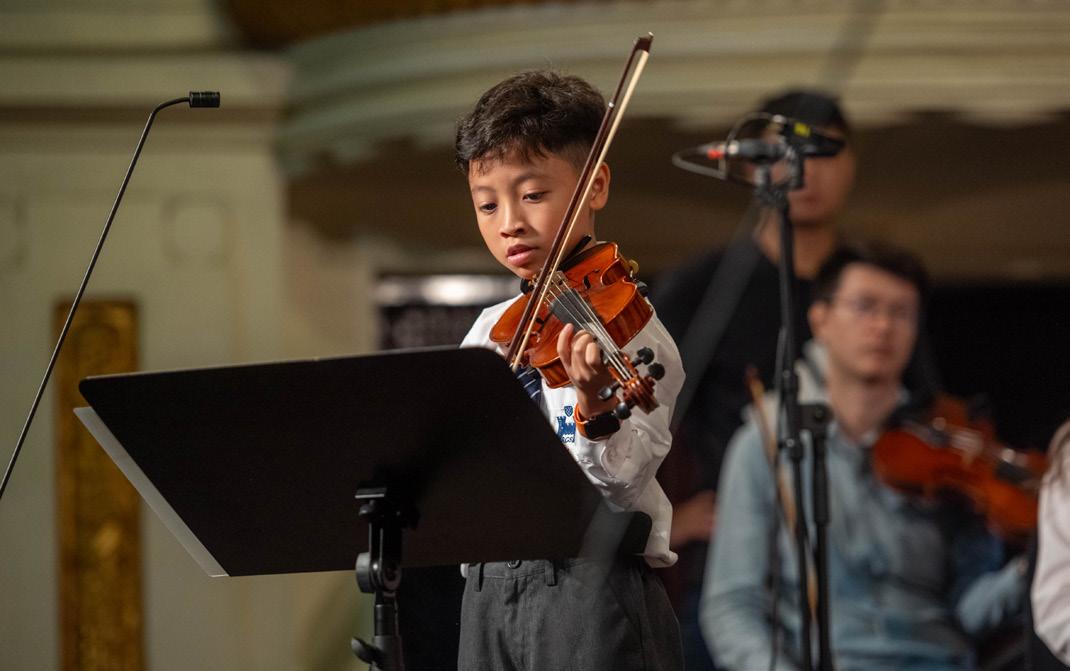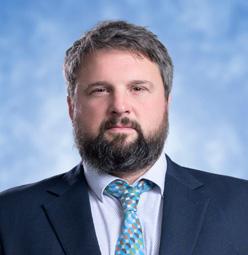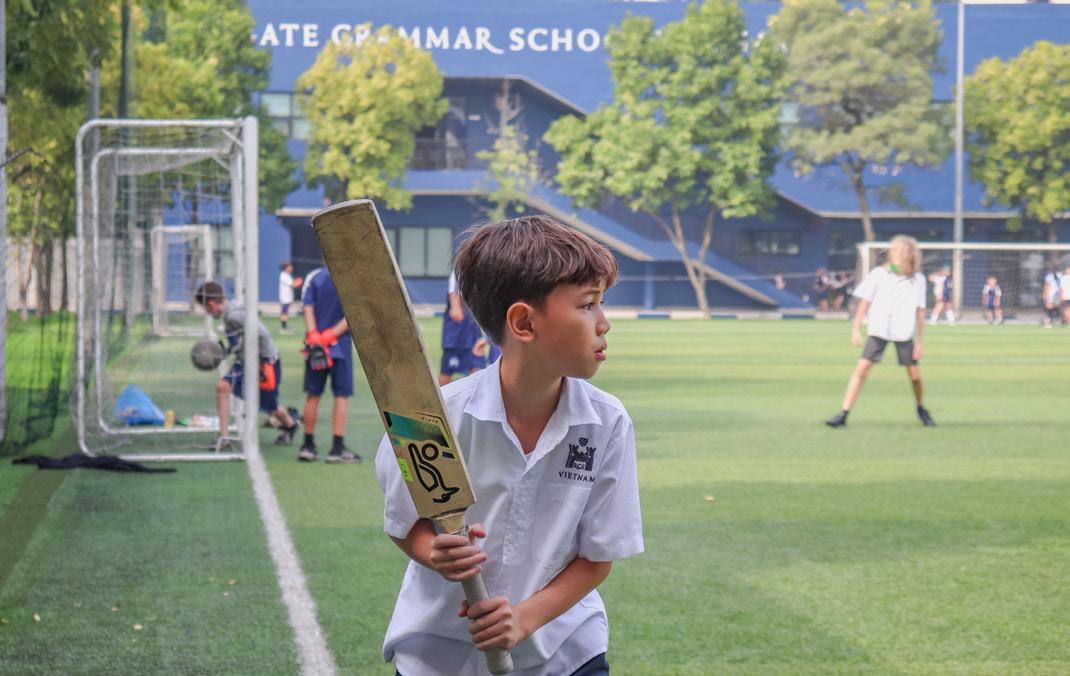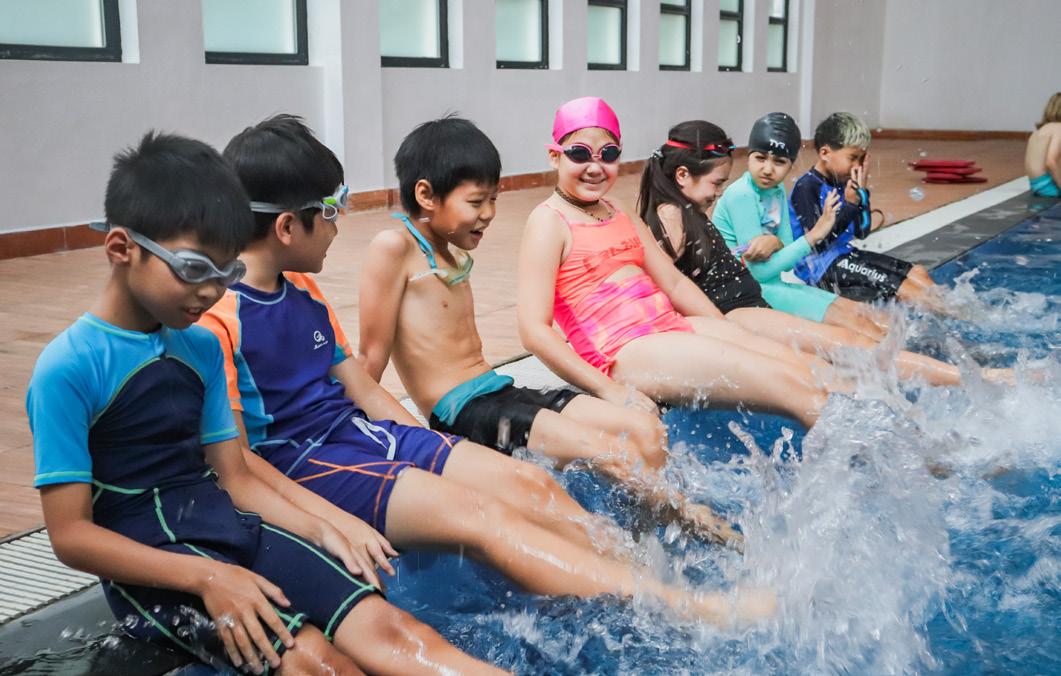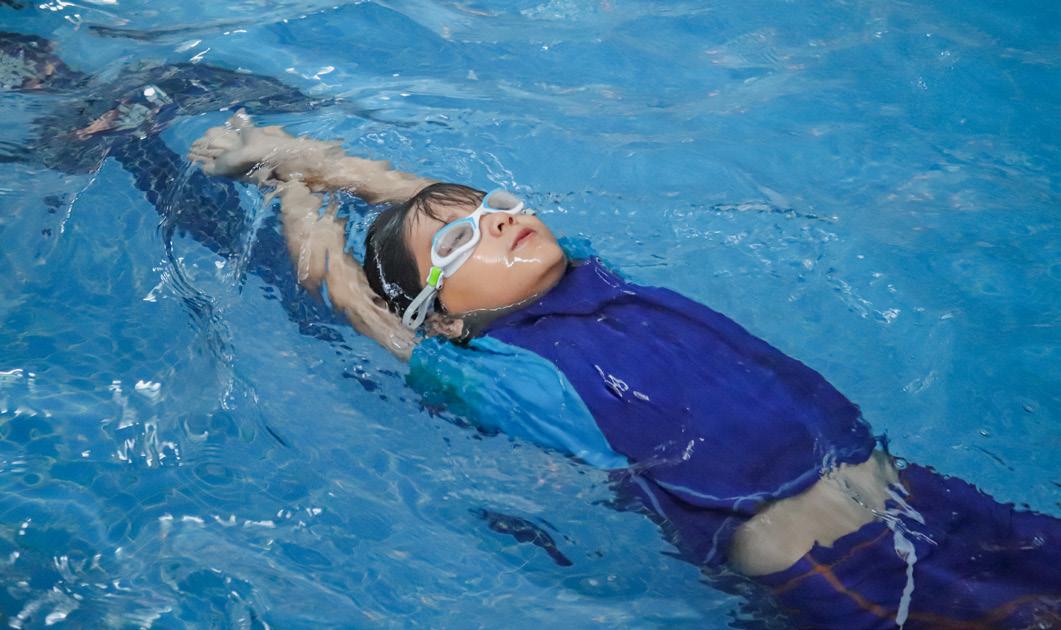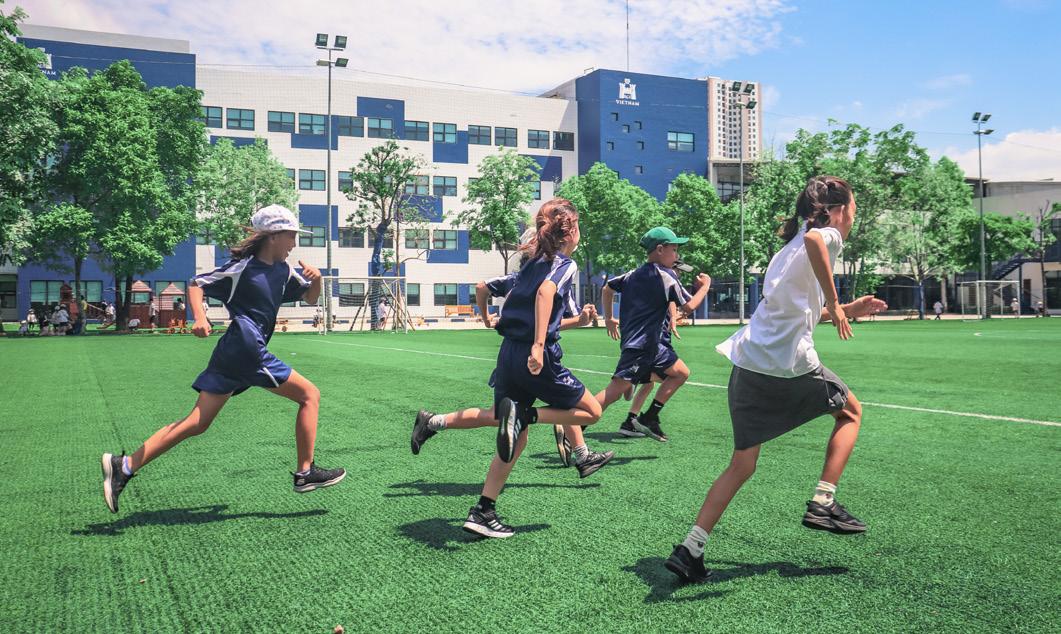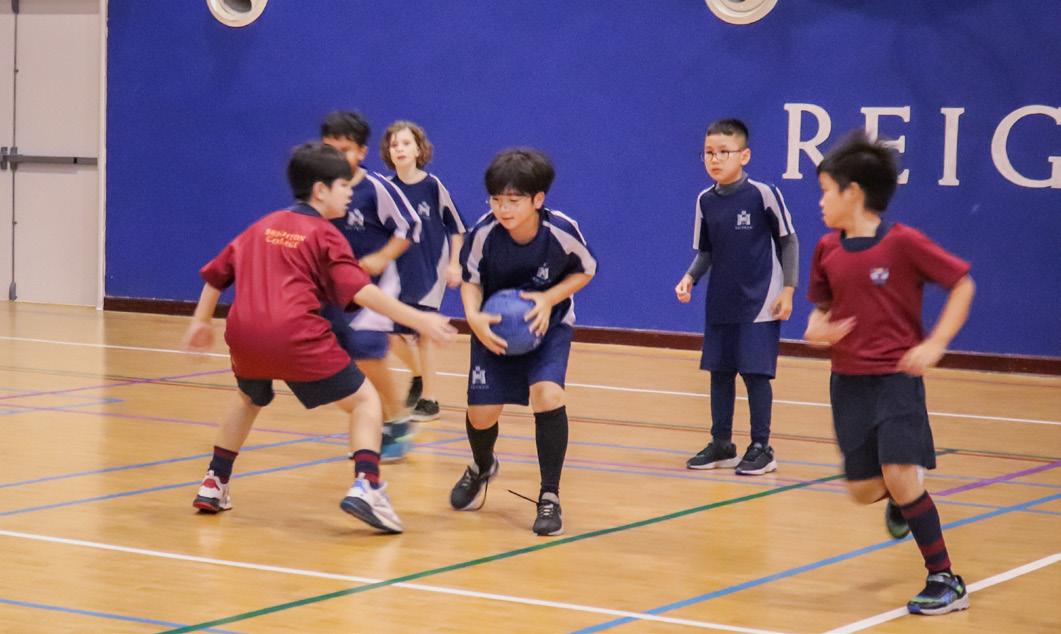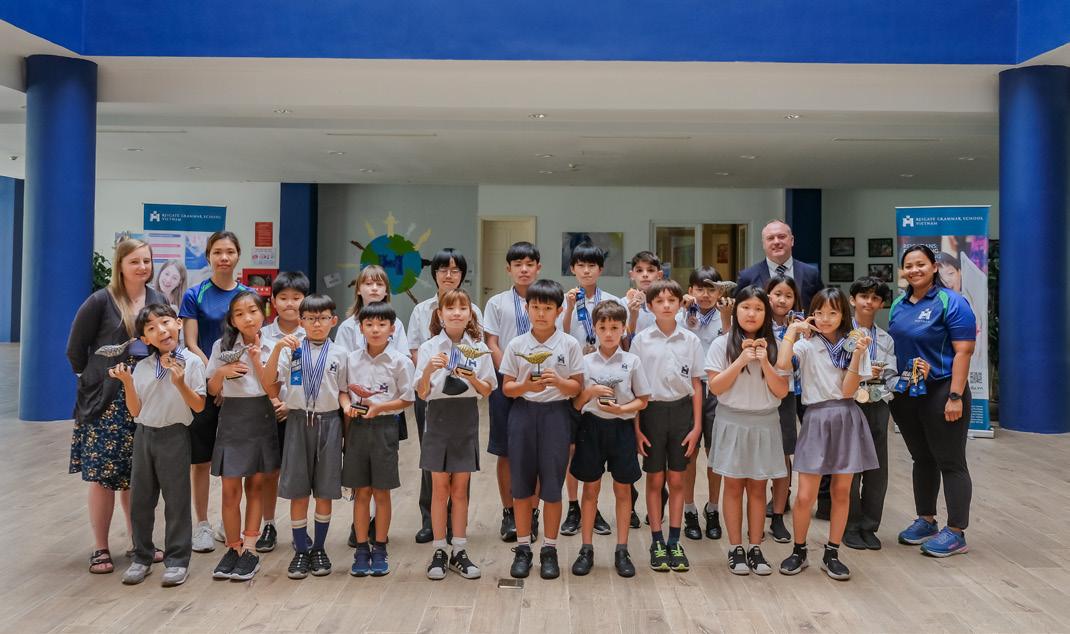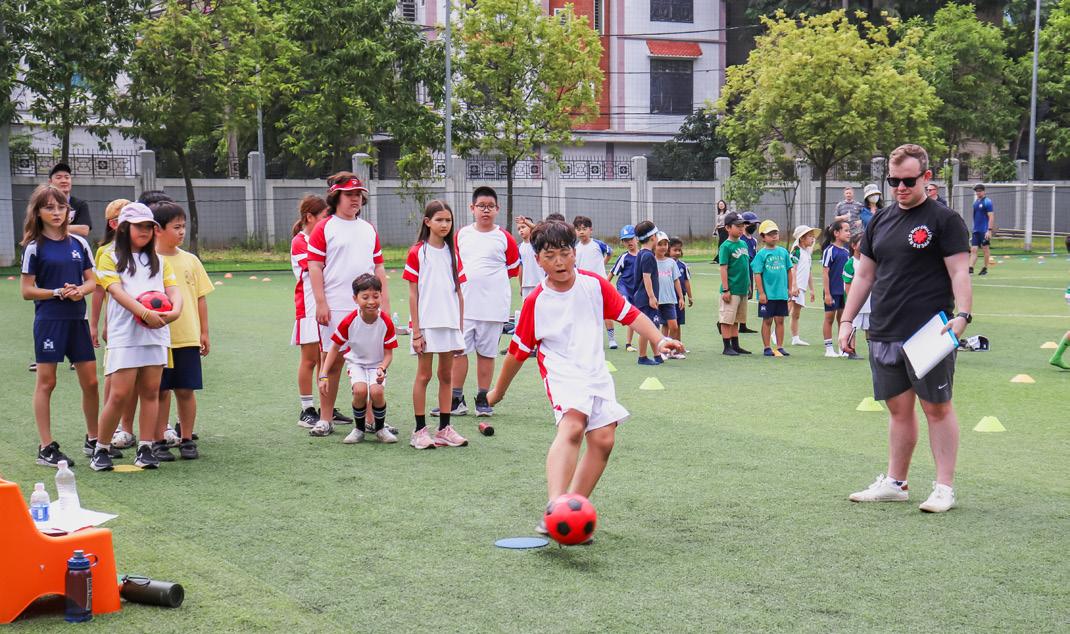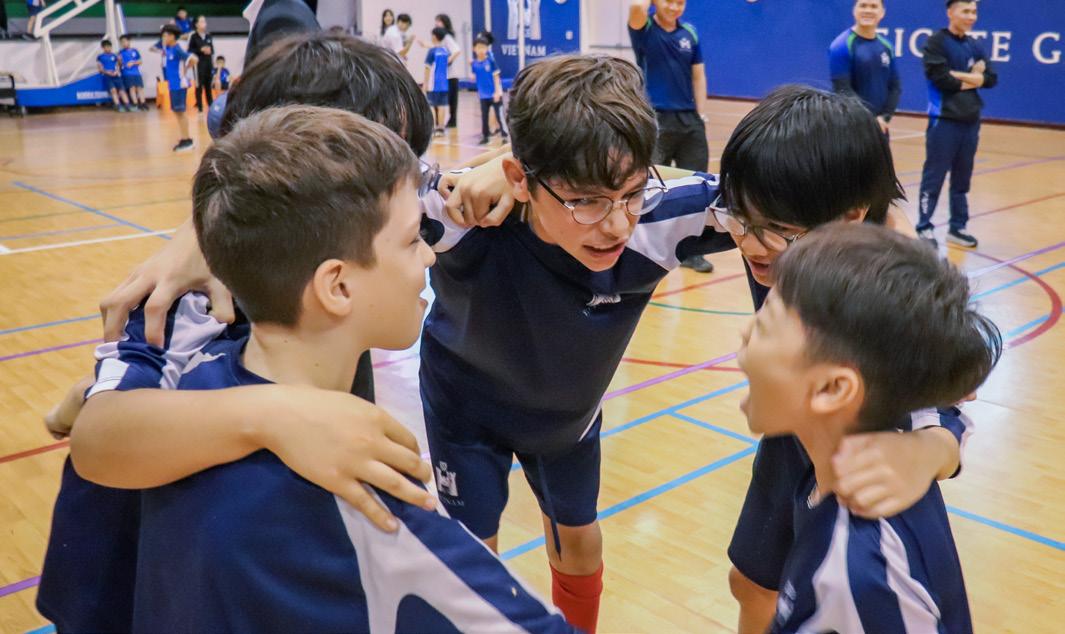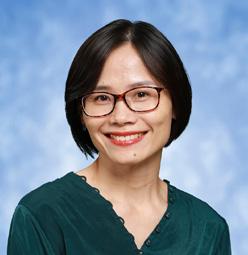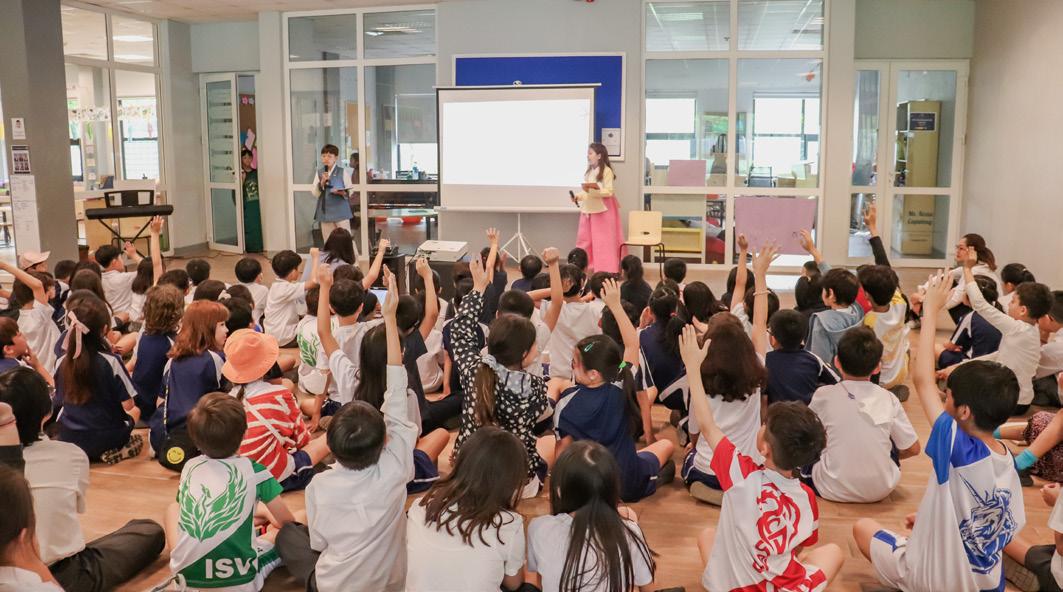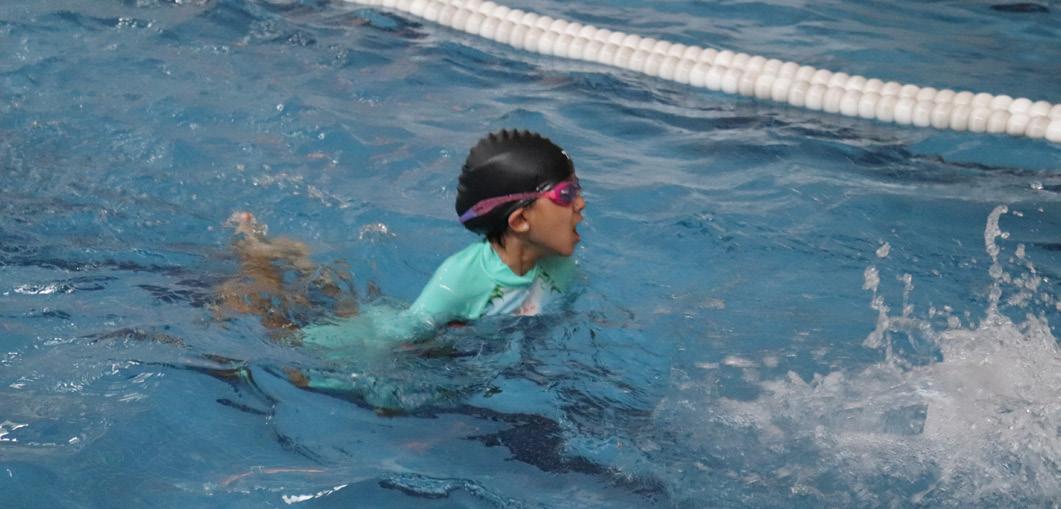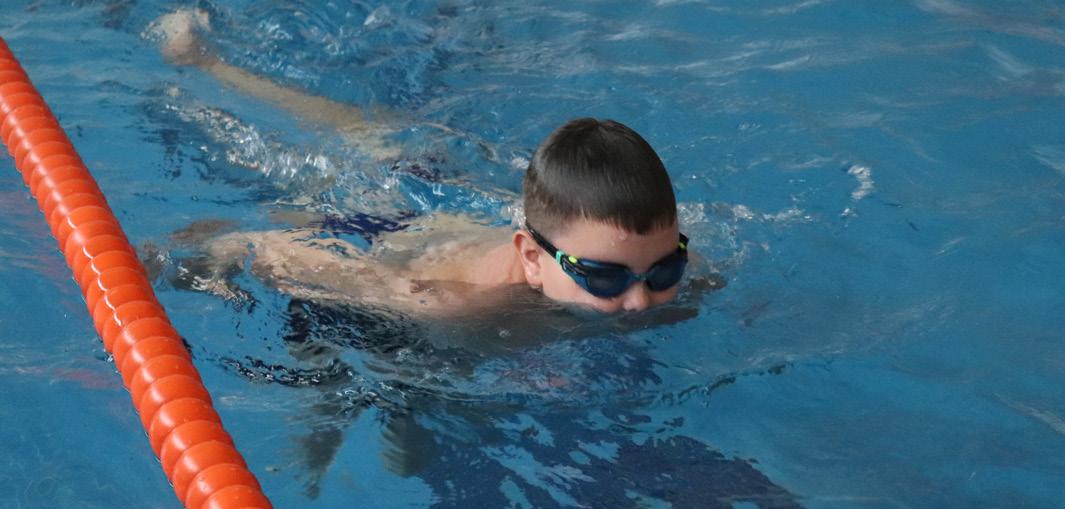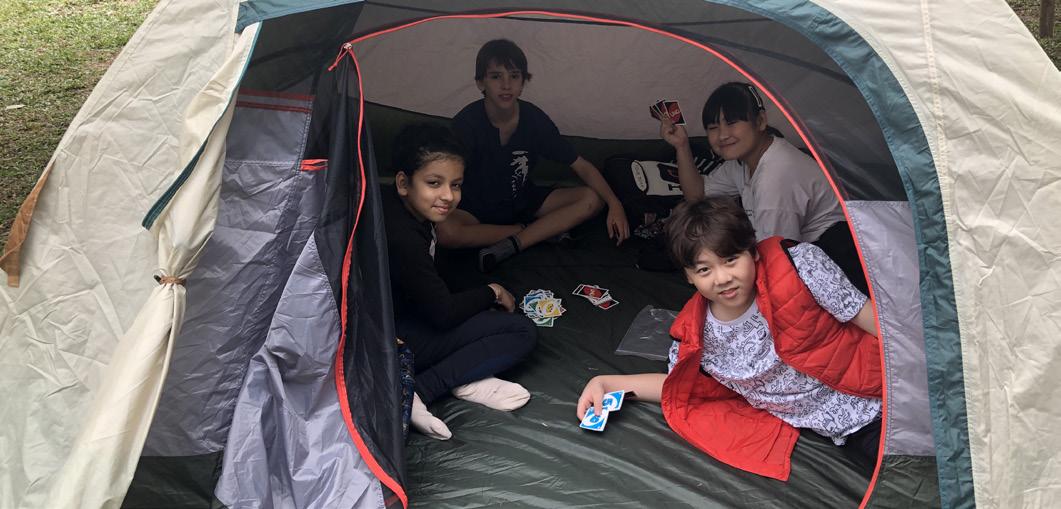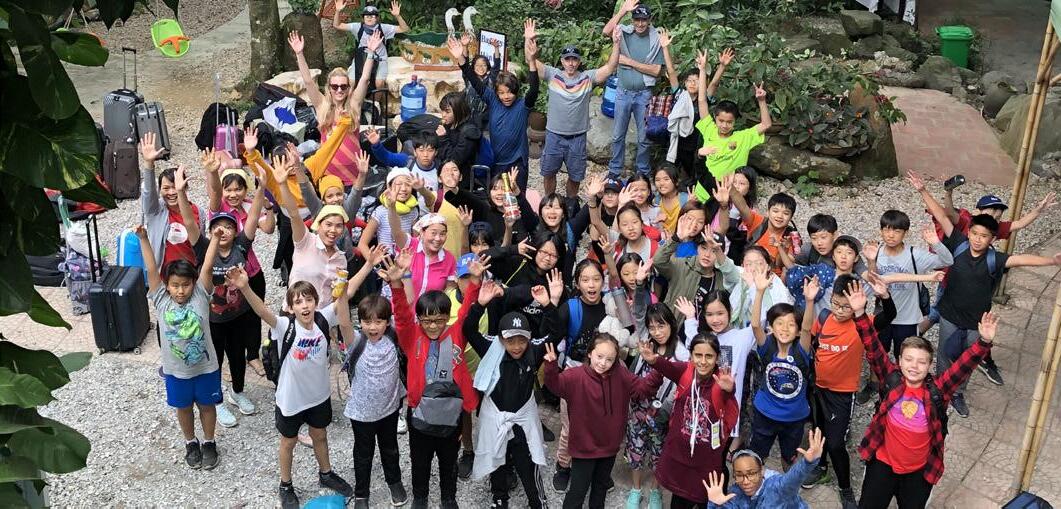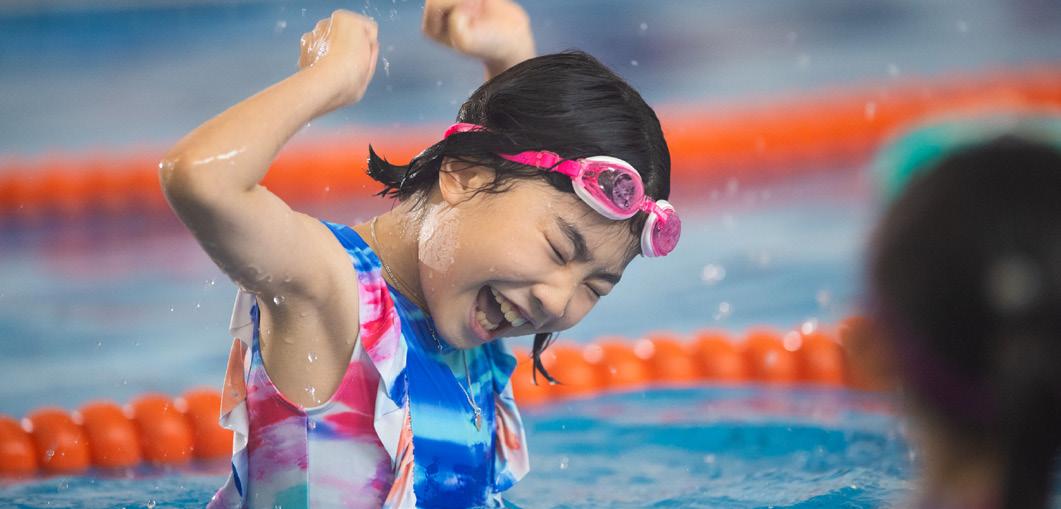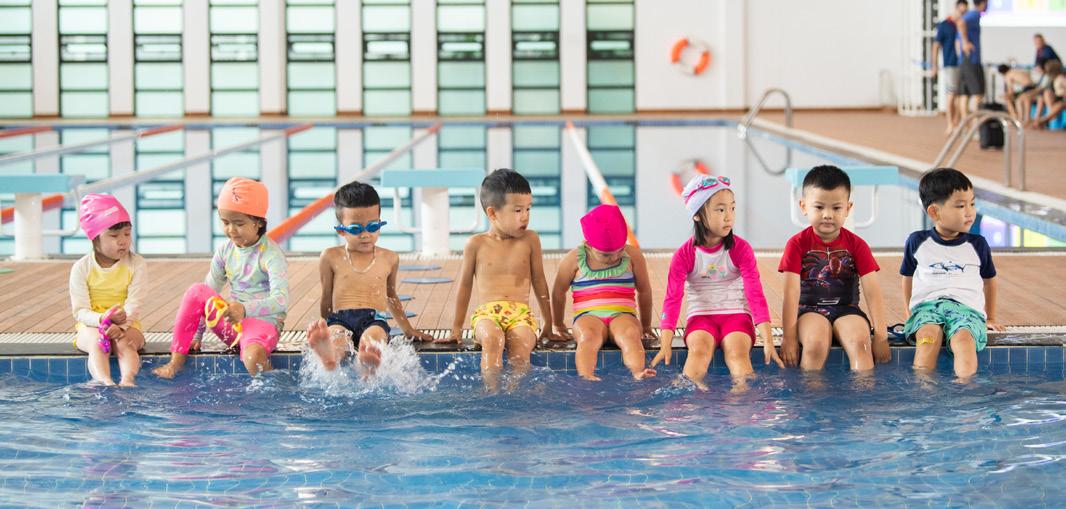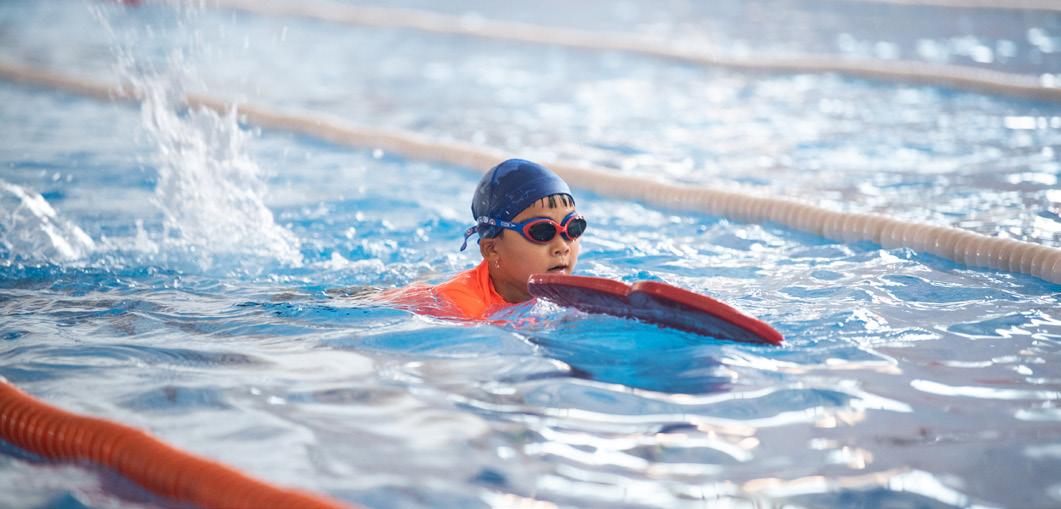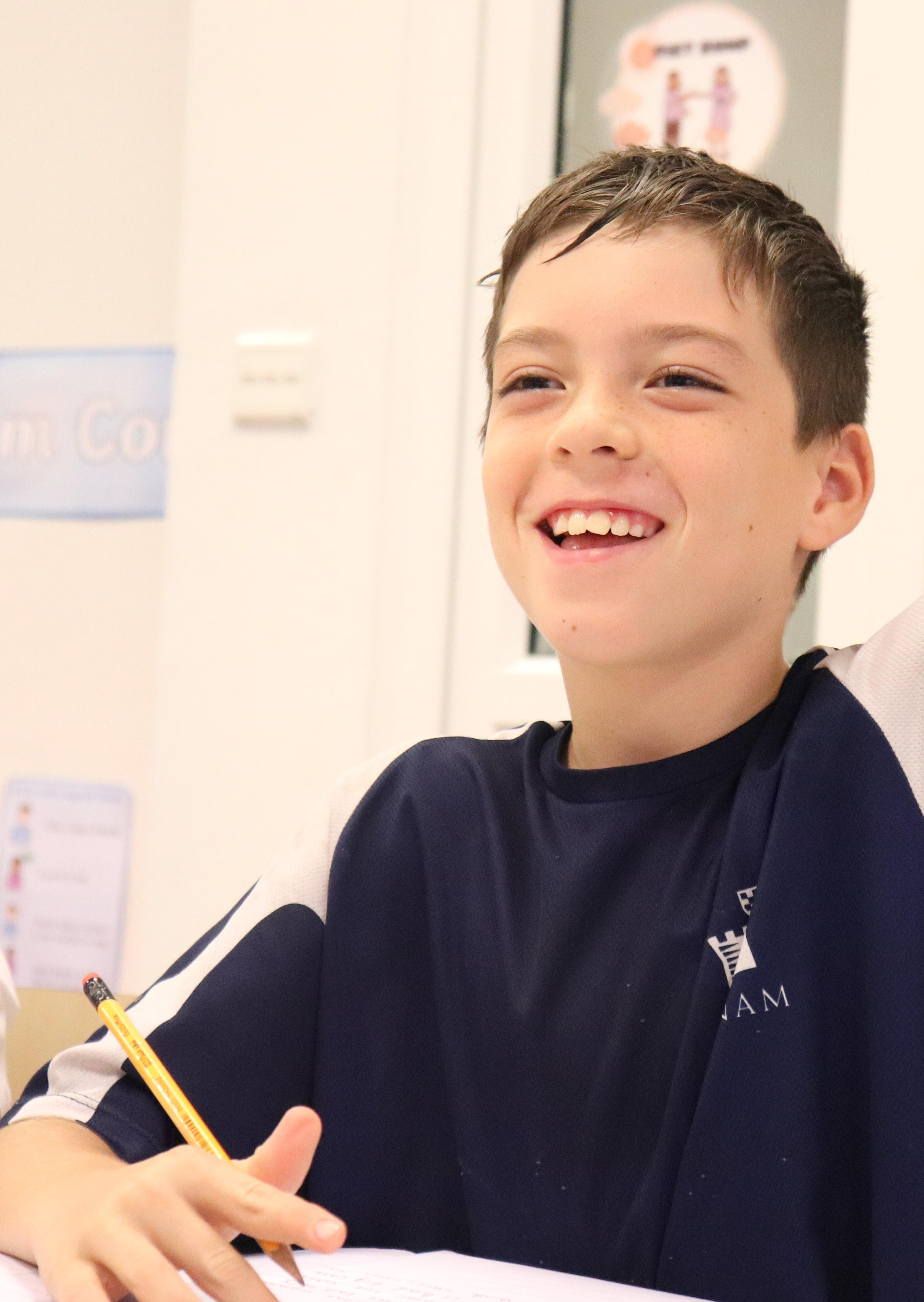CURRICULUM DESIGN
We are proud to be an IB PYP (Primary Years Programme) school, and believe in developing young students as caring, inquisitive and active participants in a lifelong journey of learning. We offer an inquiry-based curriculum that builds conceptual understanding through exploration and application of their knowledge in all curriculum areas.
“The International Baccalaureate® aims to develop inquiring, knowledgeable and caring young people who help to create a better and more peaceful world through intercultural understanding and respect.
To this end, the organization works with schools, governments and international organizations to develop challenging programmes of international education and rigorous assessment.
These programmes encourage students across the world to become active, compassionate and lifelong learners who understand that other people, with their differences, can also be right.”
The IB mission statement
Much of our relevant, engaging and creative curriculum is organised and delivered through expansive, interdisciplinary Units of Inquiry, which serve as the primary method of instruction.
PYP LEARNER PROFILE
At RSGV, we ensure our students are ready to meet their future life challenges by learning through the transdisciplinary nature of the International Baccalaureate Primary Years Program. This inquiry-driven concept-based curriculum framework encourages innovation, creativity, and problem-solving. We assist children in developing conceptual understanding within real-world contexts, whilst building on the robust foundations of knowledge and skills developed through our British Literacy and Mathematical programs of study. Literacy and mathematical knowledge and skills are applied to develop deeper understandings and our Unit of Inquiries provides relevant and engaging contexts for children to develop these important skills. Our students are well-rounded individuals who are developing creativity, resilience and confidence.
INQUIRY BASED LEARNING
Inquiry-based learning in the IB PYP (Primary Years Programme) is an educational approach that emphasises student-led exploration, curiosity, and critical thinking. It is a student-centred approach that encourages students to ask questions, investigate real-world problems, and actively engage in the learning process.
CHARACTERISTIC OF INQUIRY-BASED LEARNING IN THE IB PYP
Inquiry: students actively participate in the learning process and take ownership of their learning.
Transdisciplinary curriculum: The PYP curriculum is organised around transdisciplinary themes that integrate multiple subject areas. This encourages students to make connections between different disciplines and develop a holistic understanding of concepts.
Conceptual understanding : Inquiry-based learning in the PYP focuses on building conceptual understanding rather than just rote memorization. Students explore big ideas and develop a deep understanding of key concepts.
Student agency: Students are encouraged to take an active role in their learning, asking questions, making connections, and investigating real-world problems. They are given opportunities to explore their interests, make choices, and take responsibility for their learning.
Teacher facilitation: Teachers play a crucial role as facilitators in the inquiry-based learning process. They guide and support students in their investigations, provide resources and guidance, and help students develop their critical thinking and research skills.
Collaborative learning: Inquiry-based learning in the PYP often involves collaborative group work, where students learn from and with each other. This encourages the development of communication, collaboration, and teamwork skills.
Reflection and metacognition: Inquiry-based learning in the PYP emphasises reflection and metacognition, where students think about their thinking and reflect on their learning process. This helps them develop a deeper understanding of their own learning and thinking strategies.
TRANSDISCIPLINARY LEARNING
In the IB Primary Years Programme (PYP), learning extends beyond individual subjects; it thrives in the interconnectedness of transdisciplinary learning and concept-driven inquiry. Through this approach, children explore concepts that transcend disciplinary boundaries, fostering a holistic understanding of the world. It’s crucial for children to make authentic connections throughout their learning journey as it cultivates a deeper comprehension of concepts. This transdisciplinary learning involves weaving together various subjects such as Literacy, Mathematics, Social Studies, Science, PSPE (Physical, Social, and Personal Education), The Arts, and Languages other than English into meaningful contexts. For instance, when studying a concept like “change,” children might explore it through literature by examining characters’ transformations, in mathematics by understanding patterns, in science by investigating natural processes, and in the arts by expressing personal growth through creative mediums. This approach ensures that children not only grasp individual subjects but also see the intricate connections between them, fostering a more profound and enduring understanding of the world around them.
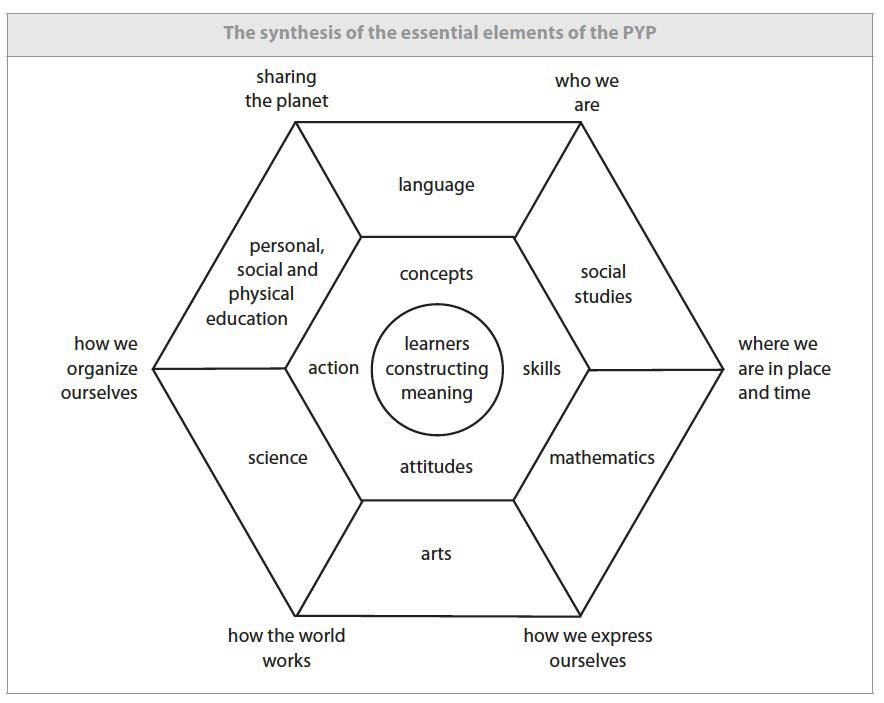
Year 4 Children at RGSV will spend the following recommended hours per week developing their subject discipline knowledge, skills and understanding through transdisciplinary or stand-alone learning opportunities.
PROGRAM OF INQUIRY
Transdisciplinary Theme Who we are
Central Idea Relationships can influence our personal development.
Lines of inquiries
We are inquiring into
1. Relationships
we organize ourselves
Products can go through changes before they are used and consumed.
1. Resources and products
YEAR 4
Forces and motion affect the world around us.
1. Forces that exist in daily life
2. Relationships help us grow as individuals
3. Our roles in our relationships
Key
2. The process of change
3. Impact of our use of products
Learner Profiles Balanced principled Reflective Caring
Approaches to
2. Forces make people and objects move
3. Scientific investigation allows us to explore more forces
Journeys can impact individuals and their communities.
1. Types of journeys
2. Planning for a Journey
The choices we make have an impact on the environment.
3. Impact of journeys 1. What waste is 2. How waste is managed 3. Our choices as a consumer
Festivals, celebrations and traditions around the world help us celebrate.
1. Connections between celebrations around the world
2. Use of art to preserve traditions
3. How and why cultures celebrate
UNIT OF INQUIRY PARENT LETTERS
At the beginning of each Unit of Inquiry, parents are sent a UoI letter. This letter is to inform and engage parents in their child’s learning journey during a specific Unit of Inquiry. The letter includes details about the central theme of the unit, the key concepts and questions that will be explored and the specific lines of inquiry that will guide the student’s investigations. This information helps parents to understand and support their child’s learning and provides a context for discussions at home. The letter will suggest ways in which parents can support their child’s learning at home, such as providing resources, participating in discussion or engaging in related activities. Through these letters we aim to create a collaborative learning environment that extends beyond the classroom. RSGV welcomes collaboration with parents and invite parents to contribute to the learning
SUBJECT AREAS
LITERACY AND LANGUAGES
AT RGSV WE EMPHASISE THE IMPORTANCE OF LEARNING LITERACY AND LANGUAGE THROUGH
• making culturally diverse reading material available
• focusing on meaning when reading and writing
• encouraging appropriate cooperative discussion in the classroom
• students engaged in spontaneous writing students
• a variety of scaffolded learning experiences - with the teacher providing strategies for the student to build on his or her own learning activities
• writing as a process
• a range of independent spelling strategies
• nurturing appreciation of the richness of language
• using language for creative problem solving and information processing
school and grades Translanguaging and creating language profiles correspond to our belief of inclusion
The IB describes the development of language as fundamental to the instinctive human need to communicate. Language learning includes the development of the home and family languages, the languages of the school, additional languages and the development of literacy. This is integral to exploring and sustaining cognitive and personal development and cultural identity. Language learning and teaching are social acts, dependent on relationships with the self and others, with context, with the environment, and with the world. The Primary Years Programme (PYP) beliefs and values about language are embedded implicitly throughout the learner profile and explicitly through the attribute of “communicator”, as well as in the IB’s approaches to learning. Through an IB education, PYP learning communities use language to build a better and more peaceful world.
Language is also a foundational aspect of identity As such, we promote all languages of the lear ning community, by encouraging mother tongue classes, by using translanguaging techniques in classrooms, and by promoting culture and language through events Our small library is growing and we aim to expand it to also include a foreign language section in it
OVERALL EXPECTATIONS IN LITERACY FOR YEAR 4 STUDENTS
A culture of language learning is foundational to a PYP learning community. Language has the power to bring the learning community closer together and overcome boundaries. It excites and invites communication in many ways, supporting and strengthening relationships and the building of international-mindedness. Language learning is located in both local and global communities. Students are able to flourish in an interconnected, mobile global community using technologies to communicate and sustain relationships. At the same time, they are rooted in local communities through cultural and linguistic knowledge and skills.
At the time of authoring this policy, ISK’s community language profiles include English, Swedish, Danish, Icelandic, Hindi, Telugu, Chinese, Russian, Azerbaijani, Ger man, Turkish, Spanish, Portuguese, Tamil, Bengali, Urdu, Arabic, Greek, Marathi, Latvian, and more Swedish culture and language are respected and promoted through Swedish literature and through embracing local celebrations and traditions such as celebrating Saint Lucy’s Day We interact with the wider Swedish community by doing field trips in and around Karlskrona and by inviting guest speakers from the community around us
Language Learning in the PYP
In the PYP, the medium of instruction is English English is integrated into the units of inquiry or organized into stand-alone ELA (English Language Arts) lessons
Swedish is taught to students in all grades from PYP 1 to PYP 6 for three 30-45 minutes long lessons each week Swedish is taught in a transdisciplinary fashion where appropriate
IB schools are committed to multilingualism as a means of affirming cultural identity and developing international-mindedness. The term “multilingualism” in the PYP refers to linguistic ability in more than one language, and recognizes that each of a student’s languages may be developed to different levels, and within different contexts, depending on their social and academic experiences. At RGSV, our Year 4 students have 3 periods a week in languages other than English including Vietnamese, Korean and French.
Both Swedish and English language lear ning are infor med by IB’s ‘Primary Years Programme Language scope and sequence , in which separate continuums have been developed It is acknowledged that language refers to more than reading and writing Visual communication such as, for example, communicating through body language or images are also means of communication Please refer to Figure 1 below
THE LITERACY STRANDS FOR YEAR 4
IB Primary Years Programme Language scope and sequence 2009 (updated 2018)
International School of Karlskrona , Language Policy, version 2, October, 2021, Page 6
The PYP has identified three strands - oral language, visual language, written language - that are learned across and throughout the curriculum, with each strand being an integral component of language learning. Each strand has been considered from both the receptive aspect - receiving and constructing meaning, and expressive aspect - creating and sharing meaning.
At RGSV we integrate clearly defined objectives from the National Curriculum for English to ensure an in-depth coverage of skills and concepts needed for our pupils.
Learners show an understanding that sounds are associated with objects, events and ideas, or with symbolic representations of them. They are aware that an object or symbol may have different sounds or words associated with it in different languages. They are beginning to be cognizant about the high degree of variability of language and its uses. Learners identify, interpret and respond to a range of visual text prompts and show an understanding that different types of visual texts serve different purposes. They use this knowledge to create their own visual texts for particular purposes. Learners show an understanding that language can be represented visually through codes and symbols. They are extending their data bank of printed codes and symbols and are able to recognize them in new contexts. They understand that reading is a vehicle for learning, and that the combination of codes conveys meaning. Learners show an understanding that writing is a means of recording, remembering and communicating. They know that writing involves the use of codes and symbols to convey meaning to others; that writing and reading uses the same codes and symbols. They know that writing can describe the factual or the imagined world.
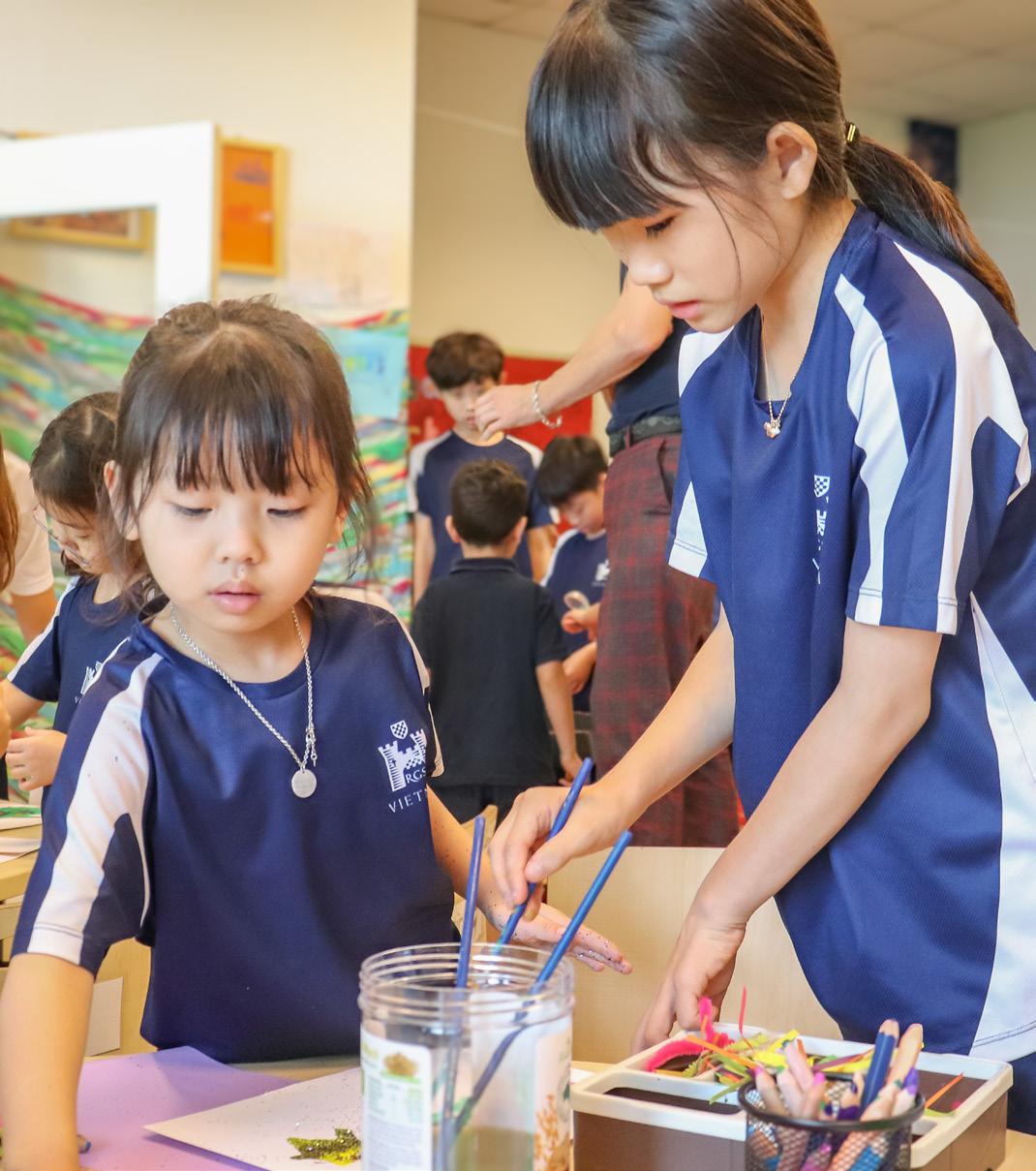
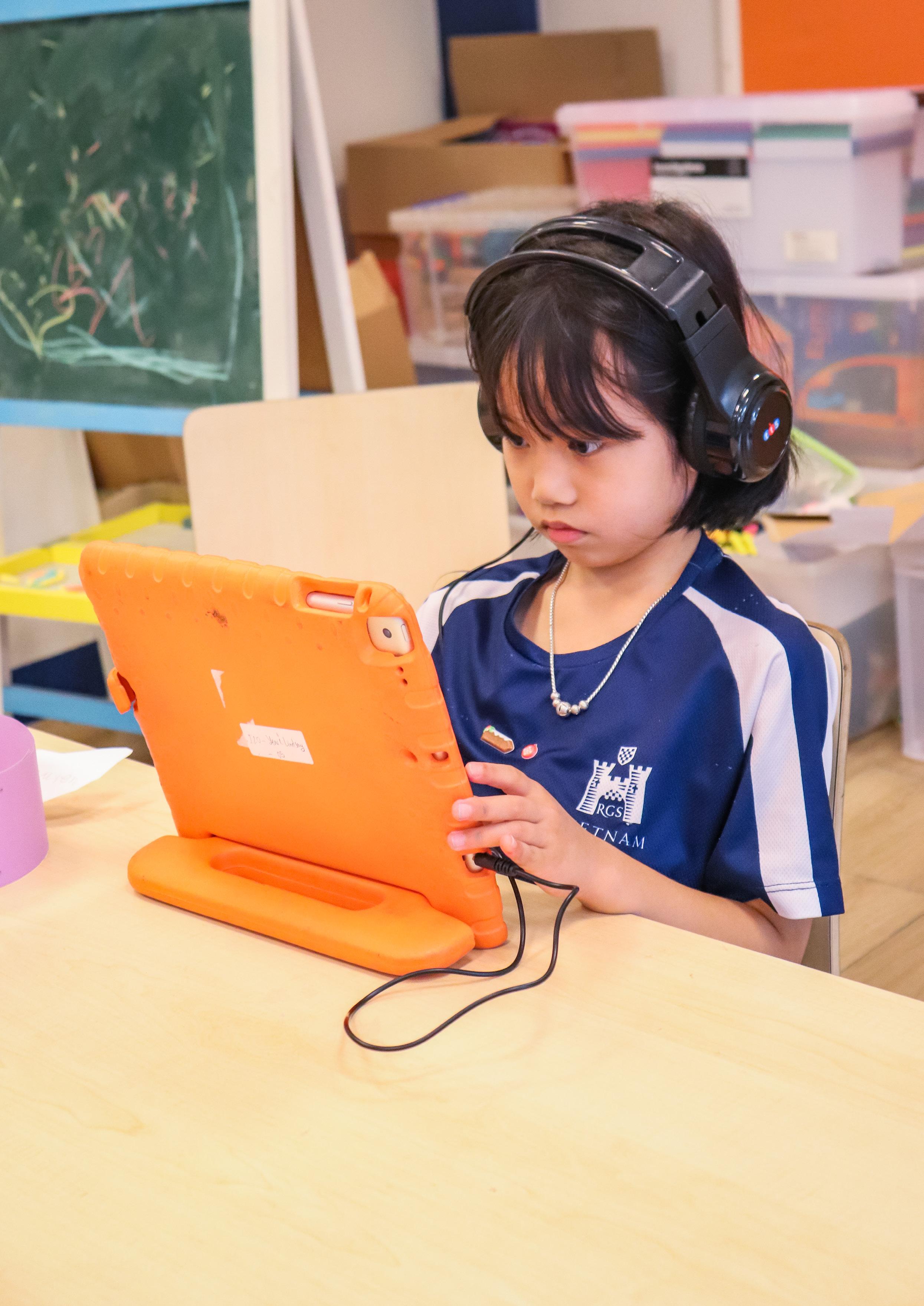
PHONICS
Phonics is taught through the Letters and Sounds programme where letters, phonemes and graphemes are grouped into Phases that show progression. Through recognising sounds and the letters used to form them, pupils’ reading and decoding skills improve greatly. Our students are regularly assessed to ensure consistent progress is being made, and appropriate learning objectives are being delivered.
Phonics lessons should be fun, interactive and engaging with lots of repetition of sounds and key words. This repetition allows the children to retain everything they are learning, supporting their reading.
MATHEMATICS
In the PYP, mathematics is viewed primarily as a vehicle to support inquiry, providing a global language through which we make sense of the world around us. It is intended that students become competent users of the language of mathematics, and can begin to use it as a way of thinking, as opposed to seeing it as a series of facts and equations to be memorised. The power of mathematics for describing and analysing the world around us is such that it has become a highly effective tool for solving problems. It is also recognized that students can appreciate the intrinsic fascination of mathematics and explore the world through its unique perceptions. In the same way that students describe themselves as “authors” or “artists”, a school’s programme should also provide students with the opportunity to see themselves as “mathematicians”, where they enjoy and are enthusiastic when exploring and learning about mathematics. The IB learner profile is integral to learning and teaching mathematics in the PYP because it represents the qualities of effective learners and internationally minded students. The learner profile, together with the other elements of the programme - knowledge, concepts, skills and action - informs planning and teaching in mathematics.
At RGSV, our Mathematics program is strengthened by integrating learning developed using the learning outcomes, resources and teaching materials from the English National Curriculum. This ensures that the content and progression of our students’ learning are in line with the English National Curriculum, providing them with the skills and knowledge necessary to succeed in transdisciplinary, inquirybased, concept-driven learning. This helps to provide a structured and coherent approach to teaching mathematics, alongside and within our Units of Inquiry ensuring that students cover the necessary mathematical topics and skills at each stage of their education.
THE MATHEMATICS STRANDS FOR YEAR 4
What do we want the students to know and understand?
NUMBER
Learners will develop their understanding of the base 10 place value system and will model, read, write, estimate, compare and order numbers to hundreds or beyond. They will have automatic recall of addition and subtraction facts and be able to model addition and subtraction of whole numbers using the appropriate mathematical language to describe their mental and written strategies. Learners will have an understanding of fractions as representations of whole-part relationships and will be able to model fractions and use fraction names in real-life situations.
MEASUREMENT
Learners will understand that standard units allow us to have a common language to measure and describe objects and events and that while estimation is a strategy that can be applied for approximate measurements, particular tools allow us to measure and describe attributes of objects and events with more accuracy. Learners will develop these understandings in relation to measurement involving length, mass, capacity, money, temperature and time.
SHAPE AND SPACE
Learners will continue to work with 2D and 3D shapes, developing the understanding that shapes are classified and named according to their properties. They will understand that examples of symmetry and transformations can be found in their immediate environment. Learners will interpret, create and use simple directions and specific vocabulary to describe paths, regions, positions and boundaries of their immediate environment.
DATA HANDLING
Learners will understand how information can be expressed as organised and structured data and that this can occur in a range of ways. They will collect and represent data in different types of graphs, interpreting the resulting information for the purpose of answering questions. The learners will develop an understanding that some events in daily life are more likely to happen than others and they will identify and describe likelihood using appropriate vocabulary.
PATTERN AND FUNCTION
Learners will understand that whole numbers exhibit patterns and relationships that can be observed and described, and that the patterns can be represented using numbers and other symbols. As a result, learners will understand the inverse relationship between addition and subtraction, and the associative and commutative properties of addition. They will be able to use their understanding of patterns to represent and make sense of real-life situations and, where appropriate, to solve problems involving addition and subtraction.
AT RGSV WE EMPHASISE THE IMPORTANCE OF LEARNING MATHEMATICS THROUGH
• connecting mathematical concepts and applications to learning
• to make mathematics understandable to students
• real-life problem solving using mathematics
• instruction built on what students know, what they want to know, and how they best might find out
• a variety of strategies for possible multiple solutions
• students being encouraged to speculate and pursue hunches
• a broad range of topics
• investigating, questioning, discussing, justifying and journaling their mathematics
• students and teachers engaged in mathematical discourse
SOCIAL STUDIES
In the PYP, social studies is viewed as the study of people in relation to their past, their present and their future, their environment and their society. Social studies encourages curiosity and develops an understanding of a rapidly changing world. Through social studies, students develop an understanding of their personal and cultural identities. They develop the skills and knowledge needed to participate actively in their classroom, their school, their community and the world: to understand themselves in relation to their communities. The aim of social studies within the PYP is to promote intercultural understanding and respect for individuals and their values and traditions. In support of the IB mission statement, the social studies component of the PYP curriculum will encourage students to “understand that other people, with their differences, can also be right”. Therefore, there is a strong emphasis on the reduction of prejudice and discrimination within the classroom, the school, the community and the world.
THE SOCIAL STUDIES STRANDS FOR YEAR 4
What do we want students to know and understand?
HUMAN SYSTEMS AND ECONOMIC ACTIVITIES
The study of how and why people construct organisations and systems; the ways in which people connect locally and globally; and the distribution of power and authority. Related concepts: communications, conflict, cooperation, education, employment, freedom, governments, justice, legislation, production, transportation, truth.
SOCIAL ORGANISATION AND CULTURE
The study of people, communities, cultures and societies; the ways in which individuals, groups and societies interact with each other. Related concepts: artefacts, authority, citizenship, communication, conflict, diversity, family, identity, networks, prejudice, religion, rights, roles, traditions.
CONTINUITY AND CHANGE THROUGH TIME
The study of the relationships between people and events through time; the past, its influences on the present and its implications for the future; people who have shaped the future through their actions. Related concepts: chronology, civilizations, conflict, discovery, exploration, history, innovation, migration, progress, revolution.
HUMAN AND NATURAL ENVIRONMENTS
The study of the distinctive features that give a place its identity; how people adapt to and alter their environment; how people experience and represent a place; the impact of natural disasters on people and the built environment. Related concepts: amenities, borders (natural, social and political), dependence, geography, impact, landscape, locality, ownership, population, regions, settlements.
AT RGSV WE EMPHASISE THE IMPORTANCE OF LEARNING SOCIAL STUDIES THROUGH
• A transdisciplinary and guided inquiry process within the Program of Inquiry
• Authentic learning experiences examining local and global issues
• Supporting students to be responsible and to take actions in our world today
• Using multiple sources and presenting multiple perspectives (Global, social, cultural and gender)
• Using factual information as a vehicle to conceptual development within units of inquiry
• Focussing on constructing meaning, expanding and deepening knowledge and understanding of the world around them
OVERALL EXPECTATIONS IN SOCIAL STUDIES FOR YEAR 4 STUDENTS
Students will increase their understanding of their world, focusing on themselves, their friends and families and their environment. They will appreciate the reasons why people belong to groups, the roles they fulfil and the different ways that people interact within groups. They will recognize connections within and between systems by which people organise themselves. They will broaden their sense of place and the reasons why particular places are important to people, as well as how and why people’s activities influence, and are influenced by, the places in their environment. Students will start to develop an understanding of their relationship with the environment. They will gain a greater sense of time, recognizing important events in their own lives, and how time and change affect people. They will become increasingly aware of how advances in technology affect individuals and the environment.
WHAT ARE THE SOCIAL STUDIES SKILLS WE WANT STUDENTS TO BE ABLE TO DO?
• Formulate and ask questions about the past, the future, places and society
• Use and analyse evidence from a variety of historical, geographical and societal sources
• Orientate in relation to place and time
• Identify roles, rights and responsibilities in society
• Assess the accuracy, validity and possible bias of sources
SCIENCE
In the PYP, science is viewed as the exploration of the biological, chemical and physical aspects of the natural world, and the relationships between them. Our understanding of science is constantly changing and evolving. The inclusion of science within the PYP leads learners to an appreciation and awareness of the world as it is viewed from a scientific perspective. It encourages curiosity and ingenuity and enables the student to develop an understanding of the world. Reflection on scientific knowledge also helps students to develop a sense of responsibility regarding the impact of their actions on themselves, others and their world. Inquiry is central to scientific investigation and understanding. Students actively construct and challenge their understanding of the world around them by combining scientific knowledge with reasoning and thinking skills. Scientific knowledge is made relevant through its innumerable applications in the real world. The science process, by encouraging hands-on experience and inquiry, enables the individual to make informed and responsible decisions, not only in science but also in other areas of life.
THE SCIENCE STRANDS FOR YEAR 4
What do we want the students to know and understand?
LIVING THINGS
The study of the characteristics, systems and behaviours of humans and other animals, and of plants; the interactions and relationships between and among them, and with their environment. Related concepts: adaptation, animals, biodiversity, biology, classification, conservation, ecosystems, evolution, genetics, growth, habitat, homeostasis, organism, plants, systems (digestive, nervous, reproductive, respiratory).
EARTH AND SPACE
The study of planet Earth and its position in the universe, particularly its relationship with the sun; the natural phenomena and systems that shape the planet and the distinctive features that identify it; the infinite and finite resources of the planet. Related concepts: atmosphere, climate, erosion, evidence, geography, geology, gravity, renewable and non-renewable energy sources, resources, seasons, space, sustainability, systems (solar, water cycle, weather), tectonic plate movement, theory of origin.
MATERIALS AND MATTER
The study of the properties, behaviours and uses of materials, both natural and human-made; the origins of human-made materials and how they are manipulated to suit a purpose. Related concepts: changes of state, chemical and physical changes, conduction and convection, density, gases, liquids, properties and uses of materials, solids, structures, sustainability.
FORCES AND ENERGY
The study of energy, its origins, storage and transfer, and the work it can do; the study of forces; the application of scientific understanding through inventions and machines. Related concepts: conservation of energy, efficiency, equilibrium, forms of energy (electricity, heat, kinetic, light, potential, sound), magnetism, mechanics, physics, pollution, power, technological advances, transformation of energy.
WHAT ARE THE SCIENCE SKILLS WE WANT STUDENTS TO BE ABLE TO DO?
• Observe carefully in order to gather data
• Use a variety of instruments and tools to measure data accurately
• Use scientific vocabulary to explain their observations and experiences
• Identify or generate a question or problem to be explored
• Plan and carry out systematic investigations, manipulating variables as necessary
• Make and test predictions
• Interpret and evaluate data gathered in order to draw conclusions
• Consider scientific models and applications of these models (including their limitations)
OVERALL EXPECTATIONS IN SCIENCE FOR YEAR 4 STUDENTS
Students will develop their observational skills by using their senses to gather and record information, and they will use their observations to identify patterns, make predictions and refine their ideas. They will explore the way objects and phenomena function, identify parts of a system, and gain an understanding of cause and effect relationships. Students will examine change over varying time periods, and will recognize that more than one variable may affect change. They will be aware of different perspectives and ways of organising the world, and they will show care and respect for themselves, other living things and the environment. Students will communicate their ideas or provide explanations using their own scientific experience.
AT RGSV WE EMPHASIS THE IMPORTANCE OF LEARNING SCIENCE THROUGH
• hands-on learning experiences to ensure that students experience and learn science process skills; high level of student involvement in a flexible learning environment
• units of inquiry that lend themselves to transdisciplinary investigations
• challenging students to answer open-ended questions with investigations so that they can abandon/modify their misconceptions by observations, measurements or experimentation (teacher as facilitator)
• a wider and responsible use of technology in all its forms as a tool for science learning
• accepting uncertainty and ambiguity or the possibility of more than one acceptable solution/ hypothesis
• more than one approach, model or process one scientific model to approach investigations discussion, dialogue, elaboration and interpretation of data gathered, with students proposing explanations and conclusions
• challenging students to find applications for, and take action on, what they have learned
• instruction that recognises that process and content are interdependent
• providing students with the opportunities to explore a science interest when it arises
• a concept-driven curriculum using a wide variety of materials and manipulatives
MUSIC
Whole School Head of Music
Canice Andrew GLEESON canice.gleeson@reigategrammar.edu.vn
In the IB PYP, music is often integrated into transdisciplinary units of inquiry. This means that music is not taught in isolation but is connected to other subject areas and real-world contexts. By integrating music with other disciplines, students can make connections and see the relevance of music in different aspects of their learning. The objectives of music in the IB PYP are to develop students who are musically literate, creative, and expressive. Through music education, students are encouraged to explore different musical traditions, styles, and genres, and develop their musical skills and techniques. The learning outcomes in music may include:
• Developing an understanding of basic music theory, including elements such as rhythm, melody, harmony, and form
• Developing skills in playing musical instruments, singing, and composing music
• Developing an appreciation for different types of music from various cultures and historical periods. Exploring the role of music in society and its cultural significance
• Developing listening and critical thinking skills through analysing and responding to music
Orchestra
RGSV is aiming to develop a high-quality school orchestra featuring all the instrumental families, playing challenging pieces from across the orchestral repertoire.
RGSV is currently in collaboration with Intro Art Education, an established musical centre, in order to provide students with specialist music teachers as part of our main program and give our students the opportunity to study and be introduced to various instruments.
We are working with Intro Art via the classroom program, ECAs, and private lessons to establish and develop the RGS Vietnam Orchestra.
PSPE (PERSONAL, SOCIAL AND PHYSICAL EDUCATION)
Head of PE
Robert SKELDON robert.skeldon@reigategrammar.edu.vn
Physical Education at RGSV encompasses a wide range of sporting and activity opportunities. Throughout the programme pupils should be involved in a range of activities including:
• Individual pursuits: The development of basic motor skills and the body’s capacity for movement through locomotor and manipulative skills and/or experiences; the techniques, rules and purpose of a range of athletic activities (for example, track and field, swimming, skating, skiing); recognizing a high level of achievement and how to improve performance.
• Movement composition: Recognizing that movements can be linked together and refined to create a sequence of aesthetic movements. Movements can be in response to stimuli or performance elements and/or criteria and can communicate feelings, emotions and ideas (for example, gymnastics, dance*, martial arts).
• Games: Recognizing the challenges presented by games; the importance of manipulating space; the categorising of games; identifying and developing appropriate skills and strategies; recognizing the importance of rules and how they define the nature of a game; modifying existing games and creating new games; and teamwork.
• Adventure challenges: A variety of tasks requiring the use of physical and critical-thinking skills by individuals and/or groups; challenges that require groups to work together collaboratively in order to solve problems and accomplish a common goal; recognizing the role of the individual in group problem-solving.
• Health-related fitness : Recognizing and appreciating the importance of maintaining a healthy lifestyle; the body’s response to exercise including the interaction of body systems and the development of physical fitness.
The overall goal of a PYP PE lesson or unit is to promote conceptbased learning which supports the development of inquiry learning. The concepts should be the building blocks for the unit or lesson and the experience of the vehicle in which to deliver the concept.
STUDENT RESPONSIBILITIES
Within Pe lessons students are responsible for allowing students to learn to the best of their ability. Students will help students when needed and will always be part of the team
WHAT TO BRING FOR PE
Students need to:
• Wear the RGSV PE kit for PE lessons
• Wear appropriate shoes for the learning environment, e.g sports shoes for the gym
• Bring a water bottle for PE lessons
• Bring a hat to wear when outside, if required
WHAT TO BRING TO SWIMMING LESSONS
Students need to:
• Wear an appropriate swimsuit, 1 piece for girls, shorts for boys
• Bring a swimming shirt, if they wish
• Bring goggles
• Bring a swim cap
• Bring a water bottle, full of water
• Bring slippers, if they wish
• A Plastic bag, or swim bag for the gear
In the PYP, personal, social and physical education (PSPE) is concerned with the individual’s well-being through the promotion and development of concepts, knowledge, attitudes and skills that contribute to this well-being. Well-being is intrinsically linked to all aspects of a student’s experience at school and beyond. It encompasses physical, emotional, cognitive, spiritual and social health and development, and contributes to an understanding of self, to developing and maintaining relationships with others, and to participation in an active, healthy lifestyle. PSPE is integral to learning and teaching in the PYP and is embodied in the IB learner profile that permeates the programme and represents the qualities of internationally minded students and effective lifelong learners. As lifelong learners we strive to make sense of our lives and the world around us by constructing meaning, exploring concepts and revising understandings. Lifelong learners adopt a positive attitude to learning, develop and apply strategies for critical and creative thinking, engage in inquiry, make connections, and apply new learning and skills in different contexts. In order to become successful learners, it is necessary for students to feel empowered by their learning, to value and take responsibility for their learning, to demonstrate resilience and to develop independence. Such learners are able to reflect on themselves, their experiences, and the process of learning in order to support personal growth and their ongoing commitment to personal, social and physical well-being.
AT RGSV WE EMPHASISE THE IMPORTANCE OF LEARNING PSPE THROUGH
• concept-driven and transdisciplinary teaching taking place both inside and outside the programme of inquiry
• every teacher as a personal and social education teacher
• flexible inquiries including issues initiated by the students
• celebrating differences
• personal and social education activities taking place throughout the school
• parents’ involvement in personal and social education learning experiences and issues empowered students taking action
• teaching about responsibility and the need to take action
• discovering students’ prior or existing beliefs
• challenging students to find applications for, and take action on, what they have learned
EXTRA-CURRICULAR ACTIVITIES AND SPORT
At RGSV we work hard to ensure your child has access to a large array of extra-curricular activities, designed to educate and nurture the whole child and connect them with our whole school.
From Music, Art and Drama to ICT and sports, your child can explore a wide variety of after-school activities throughout their years at RGS Vietnam. Each year we offer a diverse range of activities for our students, which vary each term, offered at lunchtimes, after school and even on weekends. Allowing your child to get involved in extracurricular activities at school is a wise choice and it can be very important in helping them to develop the skills, character and leadership to thrive in the future.
LOTE (LANGUAGES OTHER THAN ENGLISH)
Whole School Head of Vietnamese Hien Phan Thi Thu hien.phan@reigategrammar.edu.vn
VIETNAMESE MOTHER TONGUE PROGRAM IN RGSV LEARNERS OF THE PROGRAM
At RGSV, in the Preparatory Section, Vietnamese lessons will be offered to students from Nursery to Year 6. Vietnamese Mother Tongue is a compulsory language choice for Vietnamese students who hold Vietnamese passports.
The Vietnamese Mother Tongue Program continues into the Secondary school at RGSV for native speakers as per the requirements of the Government.
For multinationals (Vietnamese and another additional nationality), there are two options:
• Students who have studied Vietnamese Mother Tongue since Preparatory (or for at least three years) and wish to continue learning in Secondary, may be required to complete an entrance test for placement into the correct Vietnamese language level.
• Vietnamese is not currently offered as an additional language for non - native speakers in the Secondary school. Therefore, students who chose to learn Vietnamese for Foreigners or French in Preparatory will learn French in Secondary.
THE AIMS OF THE PROGRAM
The learning of Vietnamese Mother Tongue aims to not only develop students’ knowledge and skills, but also give students confidence and fluency in their communication in real life situations. Moreover, lessons about culture, history and geography help students to strengthen the connection with their roots and to be proud of their identity as well as to build up their international mindedness.
The program bases on the set of the “Kết nối tri thức với cuộc sống’’ textbooks. It includes stand alone units and collaboration units with form group classes which reflect well the transdisciplinary learning of the PYP. Students have great opportunities to explore concepts, the learner profile and lines of inquiry which effectively support their learning progress in both their mother tongue language and the language used at school.
FRENCH LANGUAGE
It takes time and dedication to learn a new language. Learning a new language involves being a risk-taker and having a growth mindset. Through purposeful and fun activities, which are centred on students’ interests and levels, learning a new language can be an enriching experience. Learning together, students have the opportunity to explore not only French culture but also to share aspects of their own culture and to become more internationally-minded.
FRENCH OVERALL EXPECTATIONS LISTENING AND SPEAKING
Learners show an understanding of the conventions associated with speaking and listening and the value of adhering to those conventions. They are aware that language is a vehicle for becoming knowledgeable; for negotiating understanding; and for negotiating the social dimension.
CONCEPTUAL UNDERSTANDINGS LISTENING AND SPEAKING
Taking time to reflect on what we hear and say helps us to make informed judgments and form new opinions. Thinking about the perspective of our audience helps us to communicate more effectively and appropriately. The grammatical structures of a language enable members of a language community to communicate with each other.
OVERALL EXPECTATIONS FOR READING
Learners show an understanding of the relationship between reading, thinking and reflection. They know that reading is extending their world, both real and imagined and that there is a reciprocal relationship between the two. Most importantly, they have established reading routines and relish the process of reading.
KOREAN LANGUAGE
Language is a means of affirming and expressing cultural identity and developing international-mindedness. RGSV provides students with multiple, authentic opportunities to learn language, learn about language, and learn through language.
At RGSV Prep, LOTE Korean is an optional choice for Korean students from Year 1 to Year 6. Korean students can choose either Korean, Vietnamese foreign language, or French.
The IB language scope and sequence are aligned with the Korean national curriculum to support students in developing the knowledge, skills, and attitudes they need to be successful learners, communicators, thinkers, and inquirers. Students are encouraged to use the Korean government-certified textbook as the primary resource. There is also a strong collaboration between homeroom UOIs to enhance students’ understanding of the LOIs and central ideas in depth.
In addition to academic skills, students develop their cultural identity and appreciation for their heritage through participating in school events to present Korean traditional culture. They also develop an agency to contribute to our local and global society to make the world a better place.
CO-CURRICULAR ACTIVITIES
LOCAL FIELD TRIPS AND VISITORS
In the Primary Years Programme (PYP), local trips and visitors play a pivotal role in enriching your child’s learning journey. These experiences are more than just field trips—they’re invaluable opportunities for children to connect classroom learning with the world around them. Through visits to local museums, parks, and businesses, and interactions with experts or community members, children gain a deeper understanding of concepts taught in class. They witness firsthand how their learning relates to real-life situations, fostering curiosity, critical thinking, and a broader perspective. These experiences encourage cultural appreciation, environmental awareness, and the development of essential social skills. By engaging with the local community, children not only learn about the world but also become active participants in it, fostering a sense of belonging and responsibility. We value these experiences as they contribute significantly to your child’s holistic development within the PYP framework.
SWIMMING
Reigate Grammar School Vietnam has two indoor swimming pools. One of the pools is a learner pool, while the other is a competition pool. These pools are designed to cater to the needs of students and provide them with opportunities for both learning and recreational activities. Swimming is an important part of the school’s curriculum, as it promotes physical fitness and overall well-being. The swimming pools at Reigate Grammar School Vietnam are likely used for swimming lessons, aquatic sports, and general recreational activities. Having two swimming pools allows the school to accommodate different age groups and skill levels. The learner pool is likely used for younger students or those who are still developing their swimming abilities. The competition pool, on the other hand, is likely used for more advanced swimmers or for hosting swimming competitions and events.
